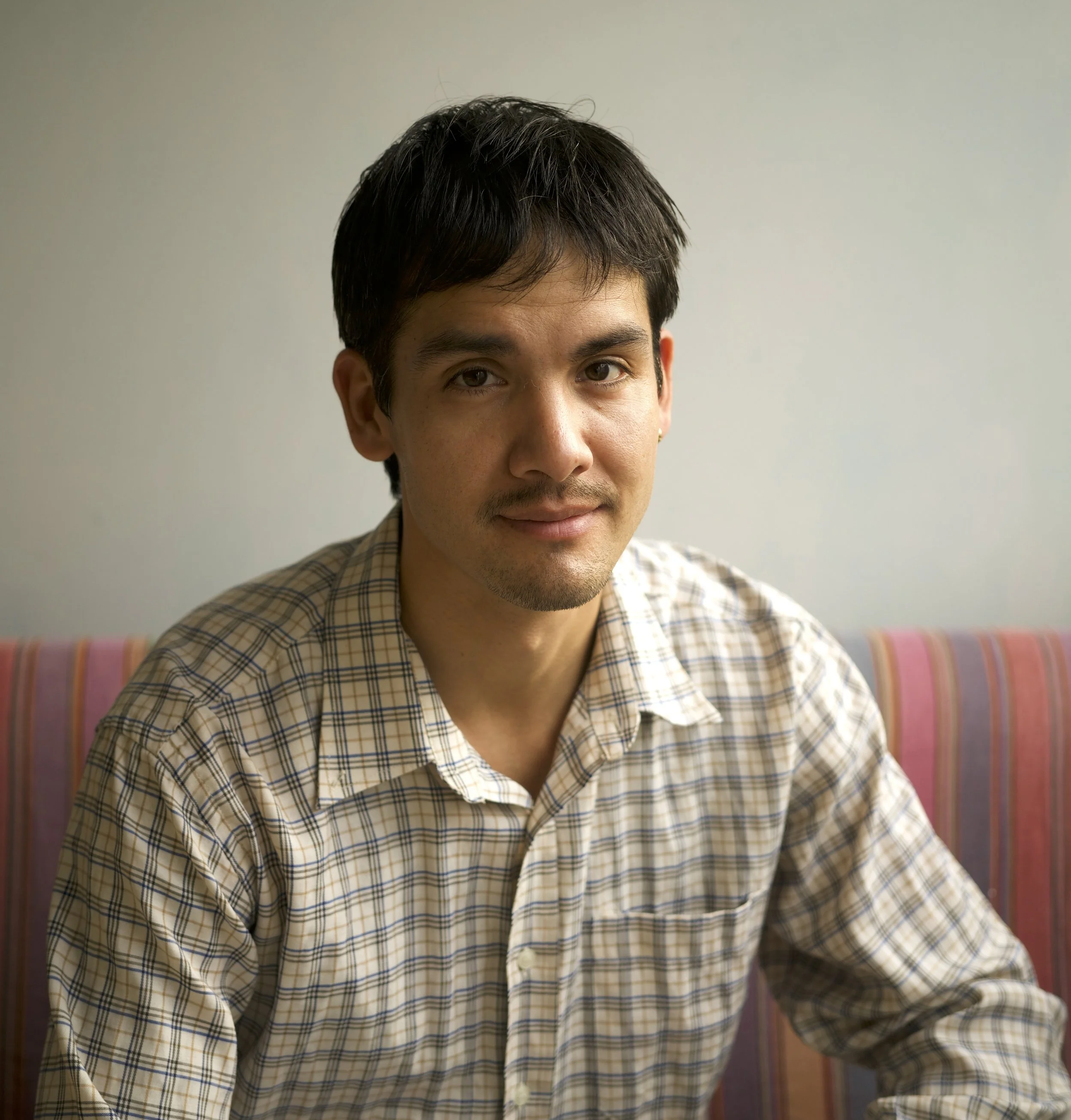
Canada Research Chair
Around the world, lived experiences of racism drive Black people to organize mutual aid, collectives and rotating savings and credit associations to counteract the fact that they are often excluded from the business world. Cooperatives and other solidarity economies (which prioritize social profitability over purely financial profits) thrive among Black and other marginalized communities because these communities are often not fully integrated into the modern capitalist economy.
As Canada Research Chair in Africana Development and Feminist Political Economy, Dr. Caroline Hossein is influencing how we “do” international development by drawing on the lived experiences of co-operators in the African diaspora to provoke a radical paradigm shift in mainstream political economy. She and her research team are working with an international collective to design principles, create new knowledge, and build support for Black-led informal institutions rooted in mutuality and reciprocity.
Solidarity/Social Economy Workshop
Women's Multicultural Resource & Cultural Centre (WMRCC) Hosted by The Banker Ladies Council
Wednesday March 27th, 12:00pm - 3:00pm EST
Ajax, Ontario

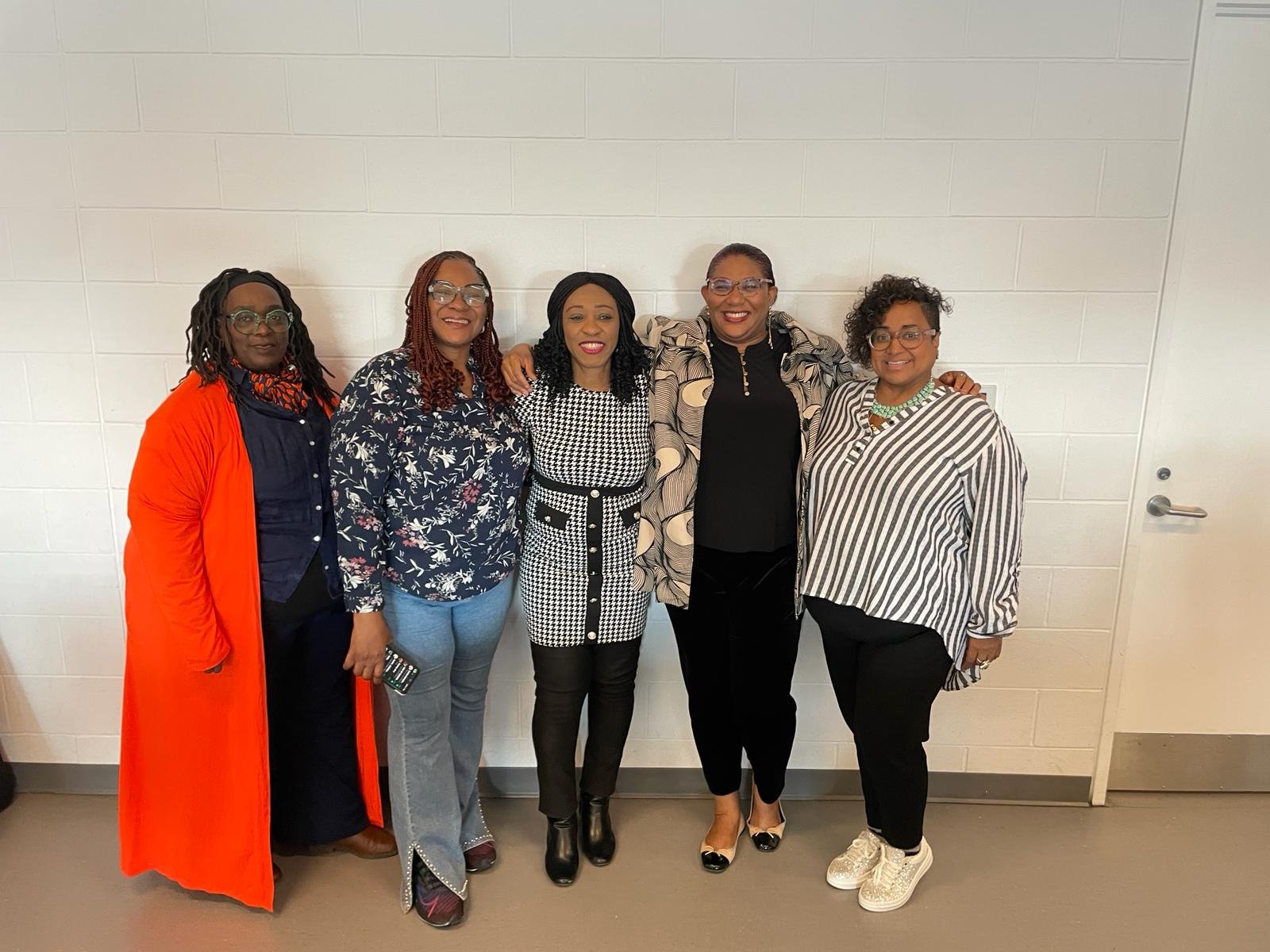
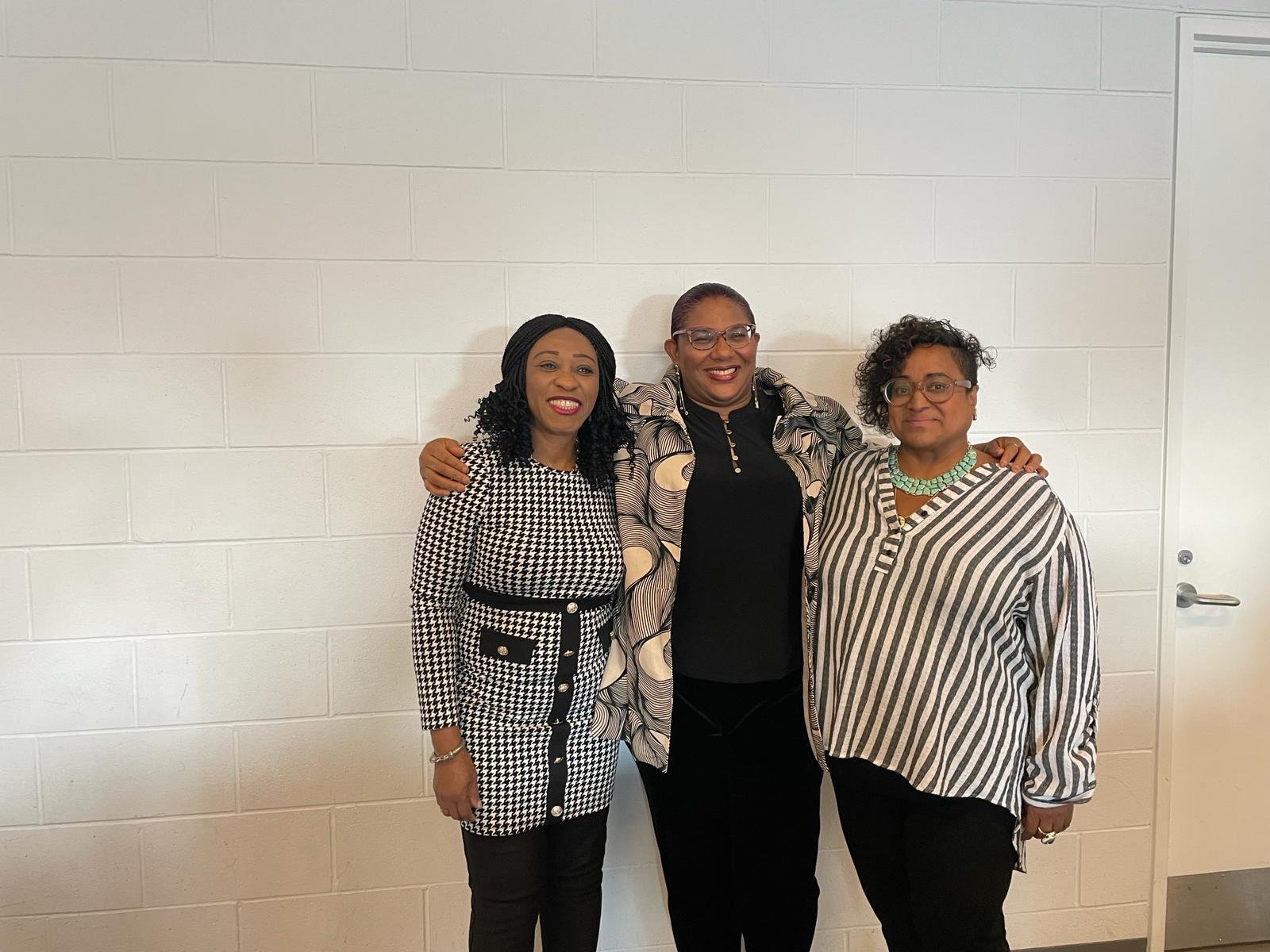
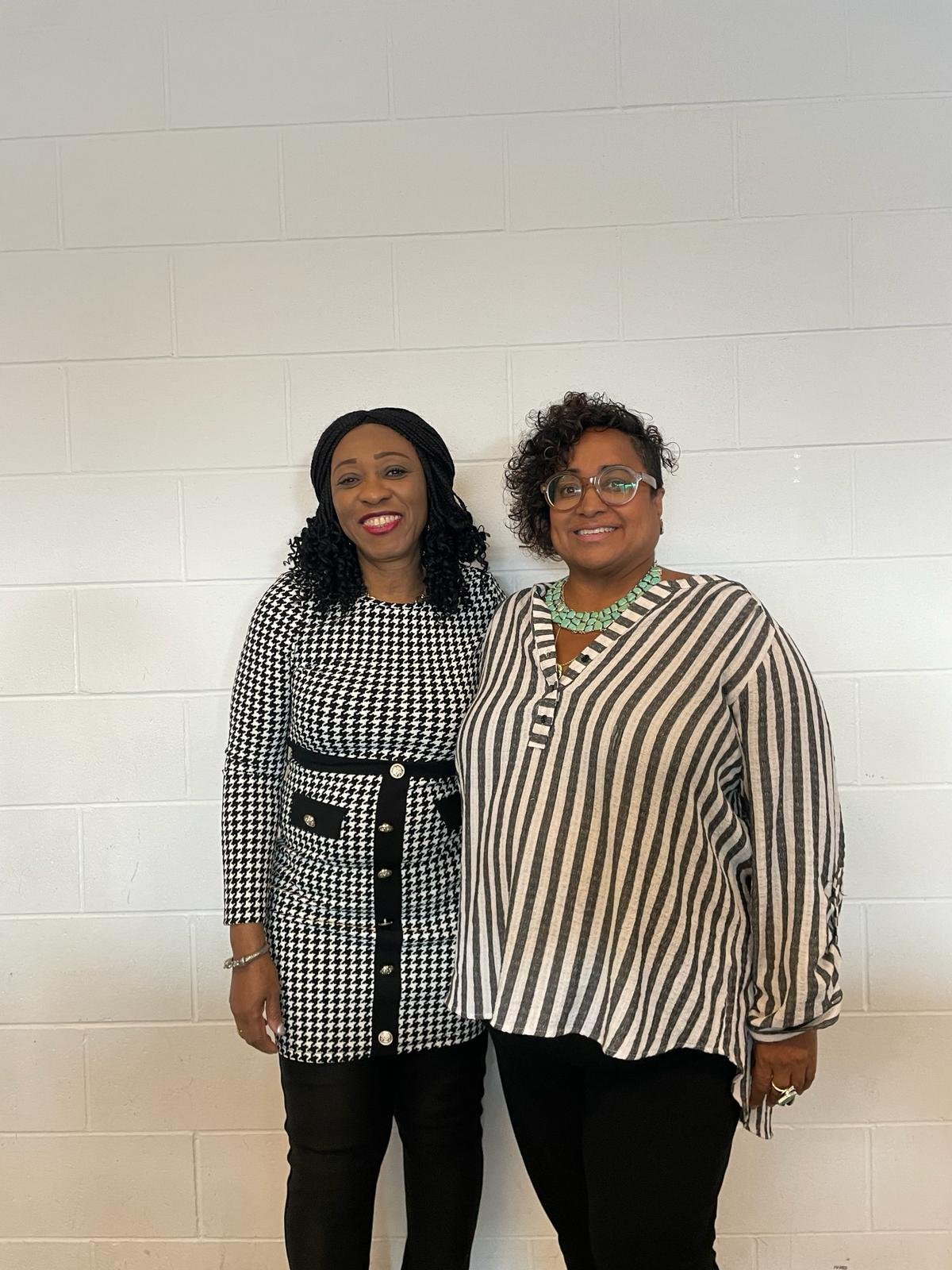


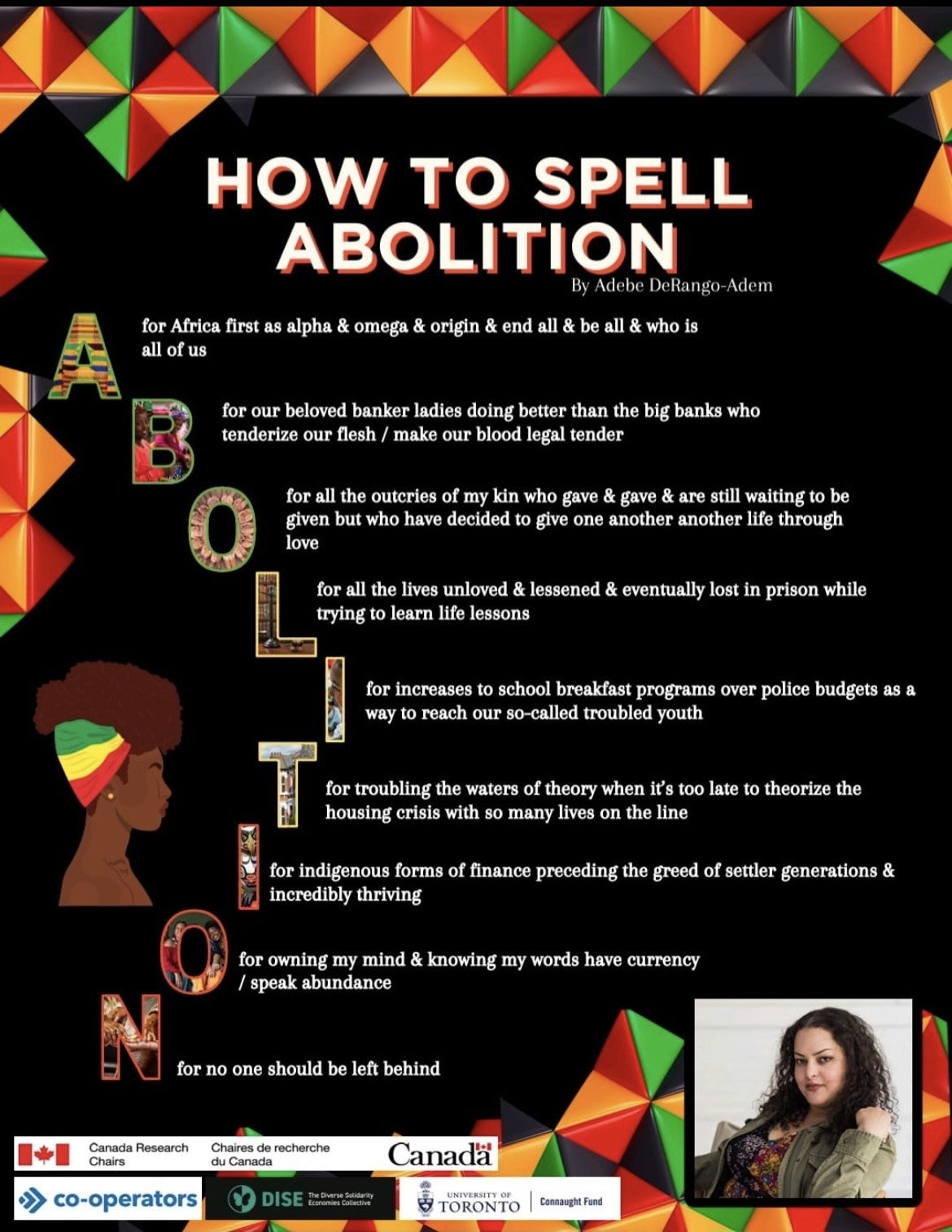

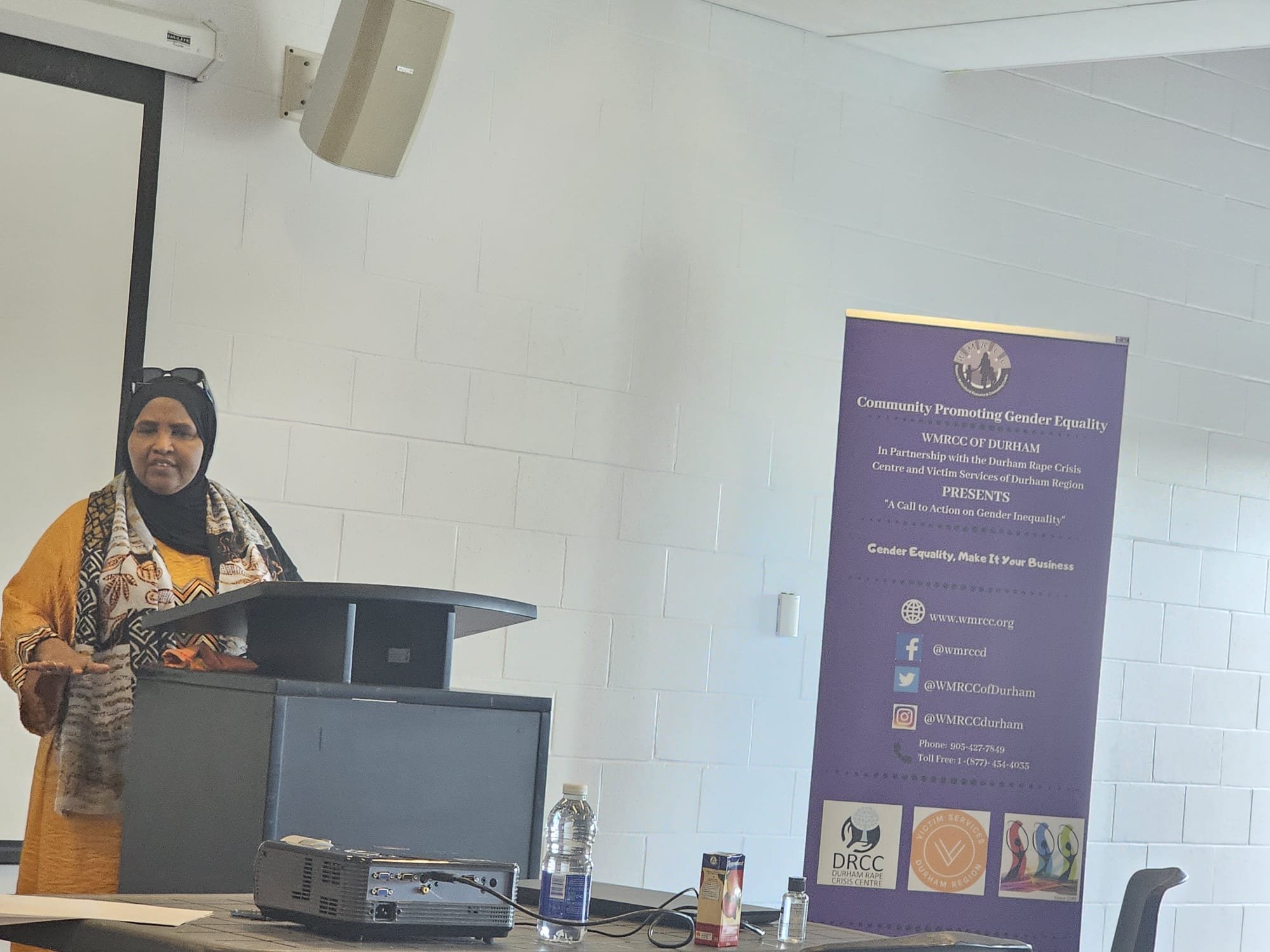
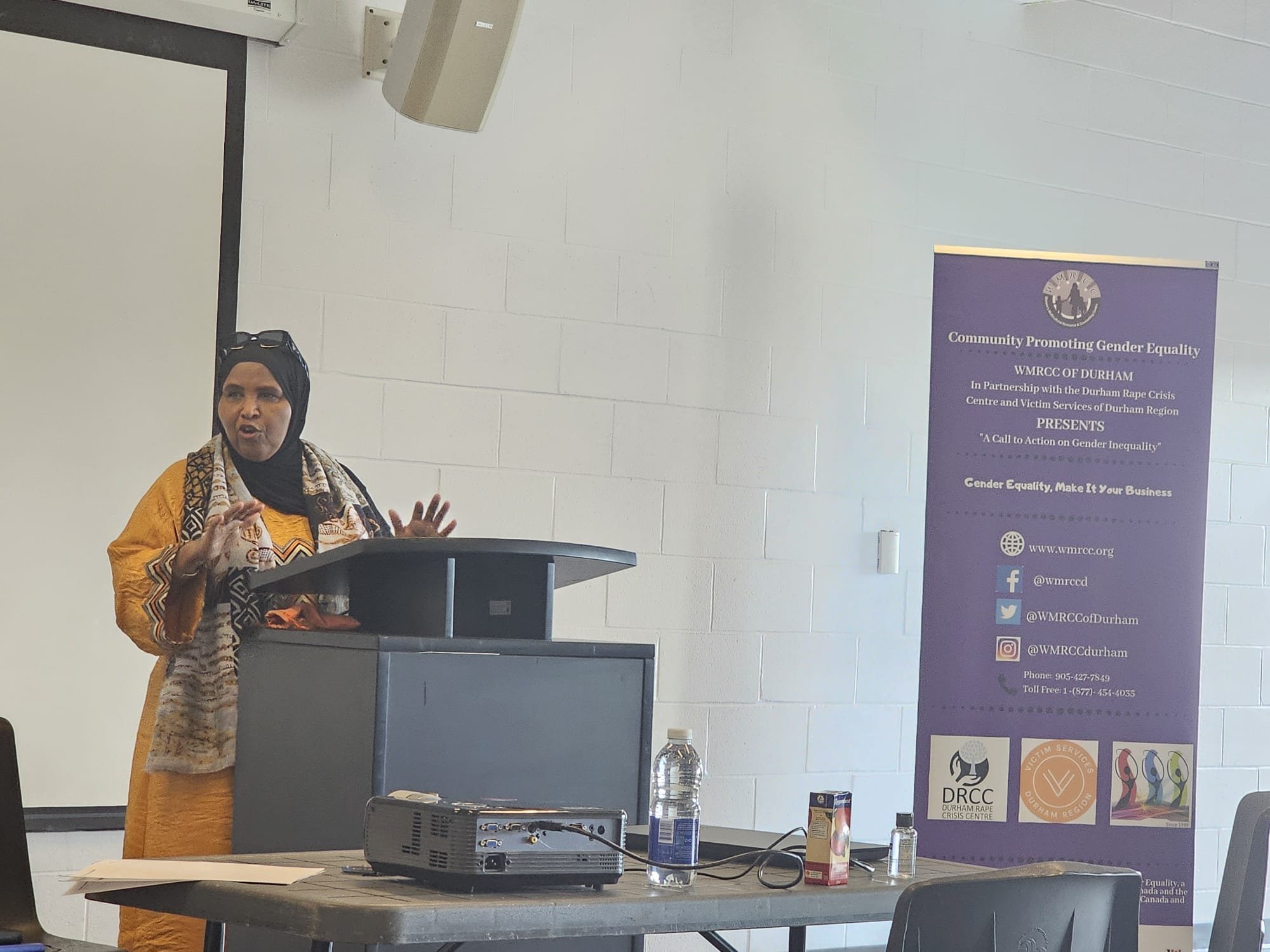






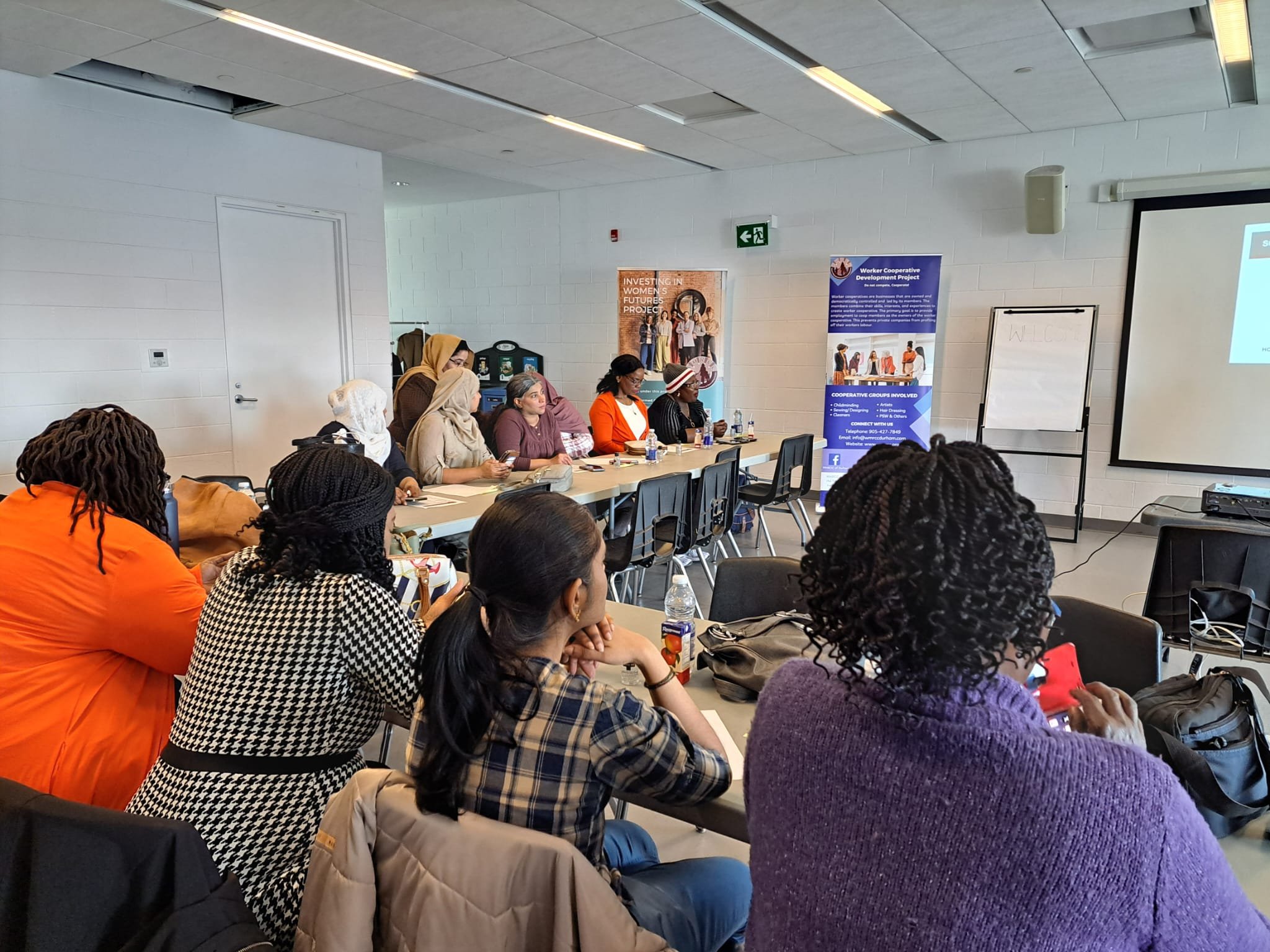
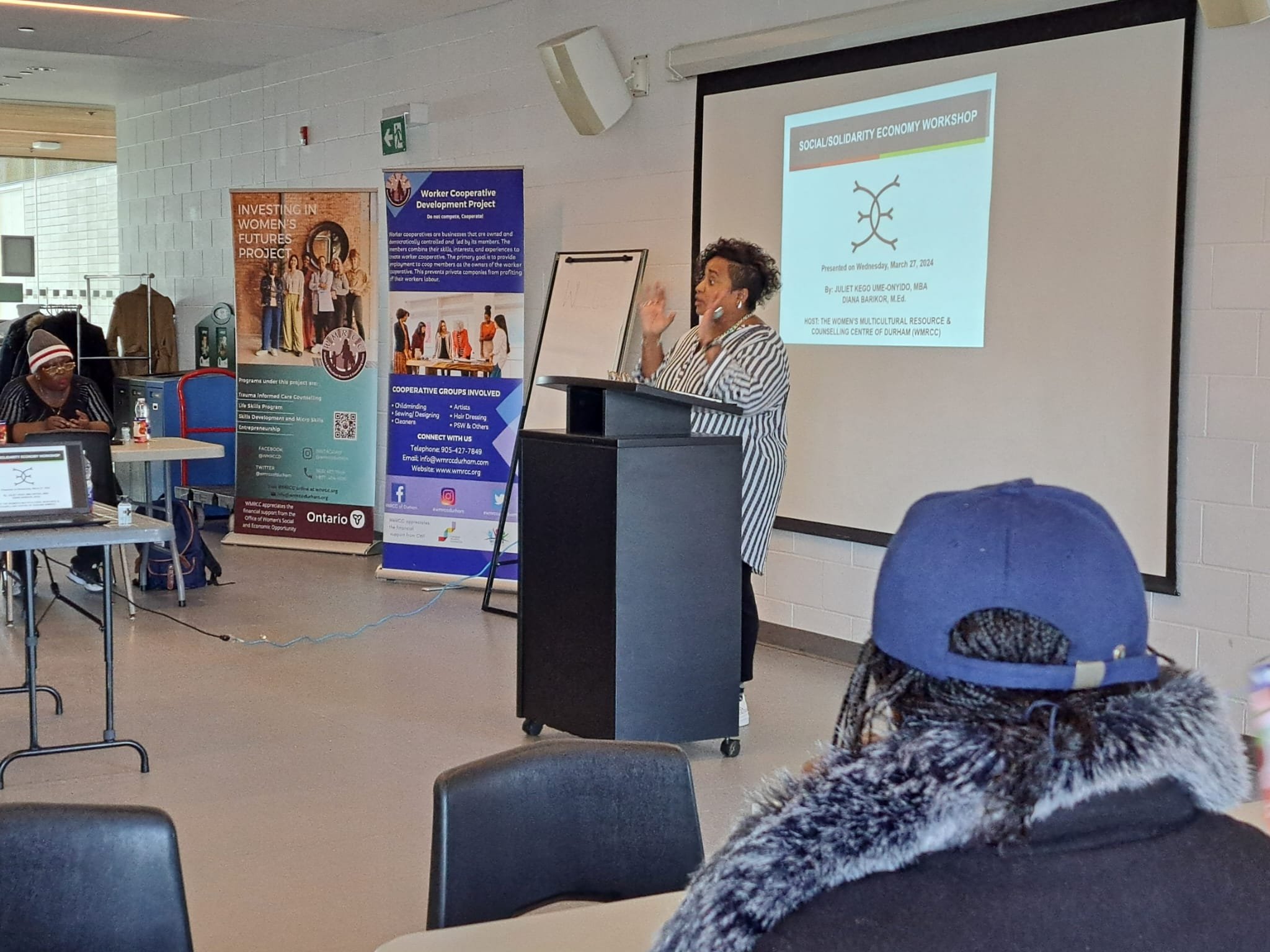
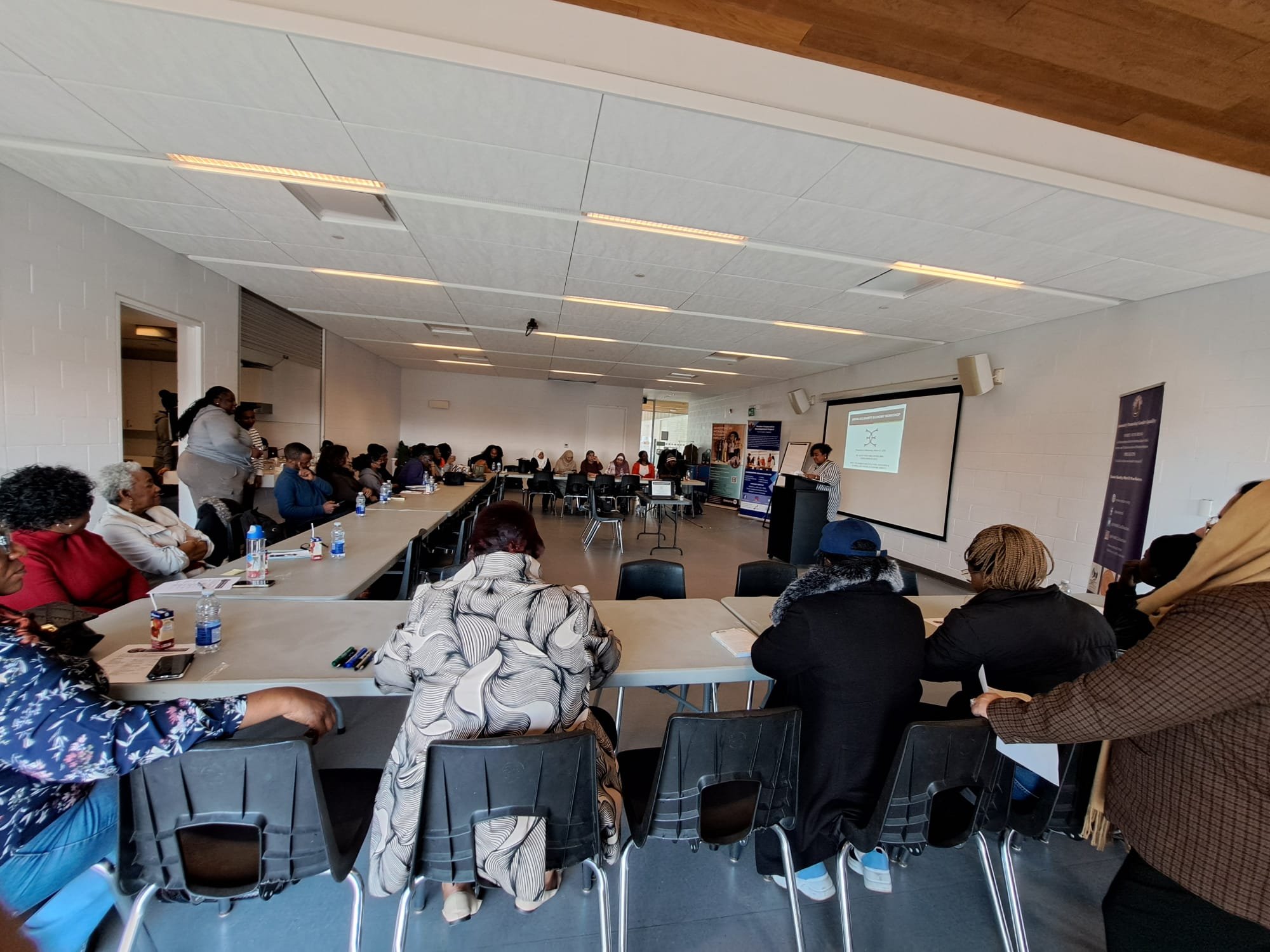
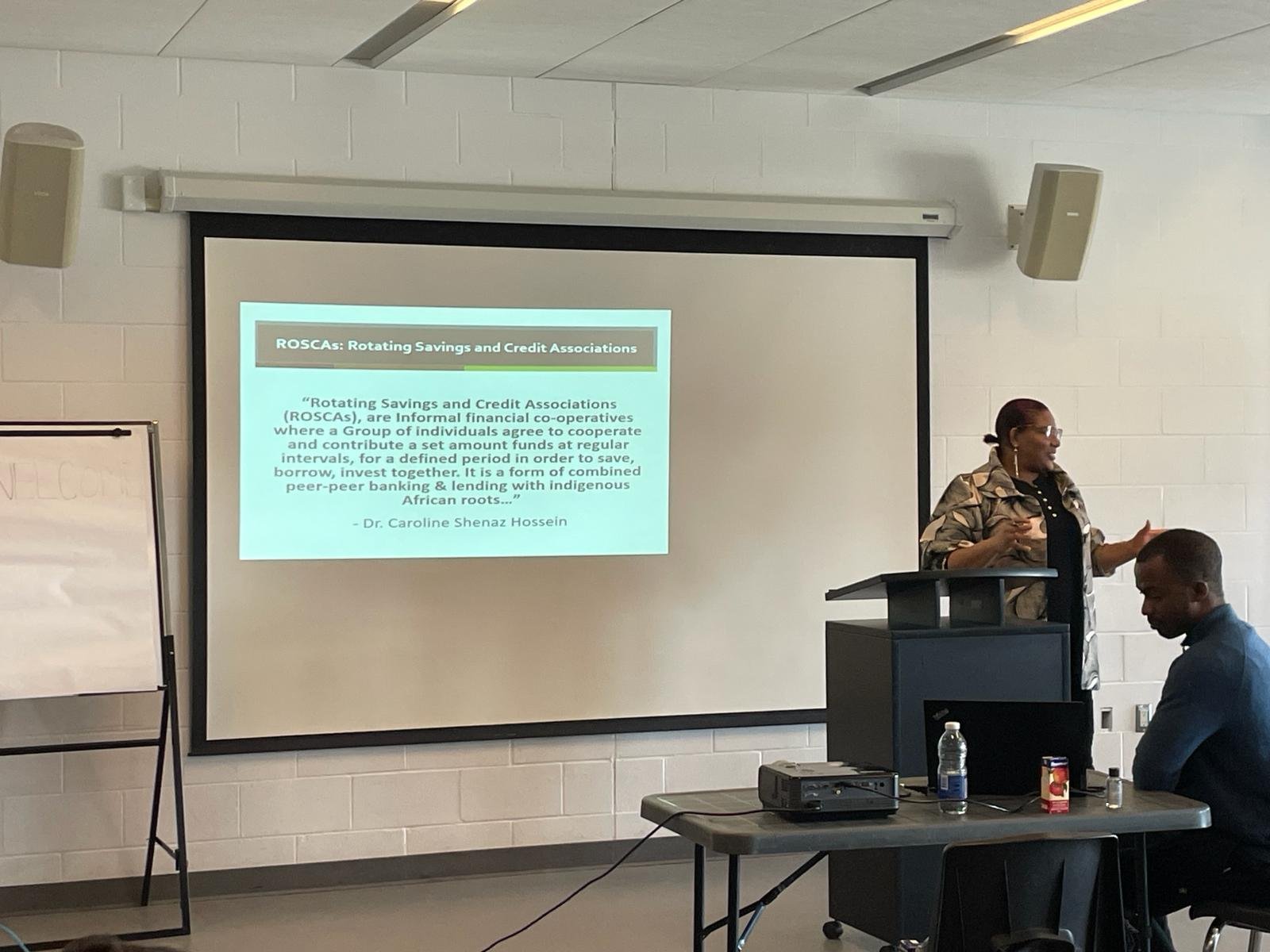
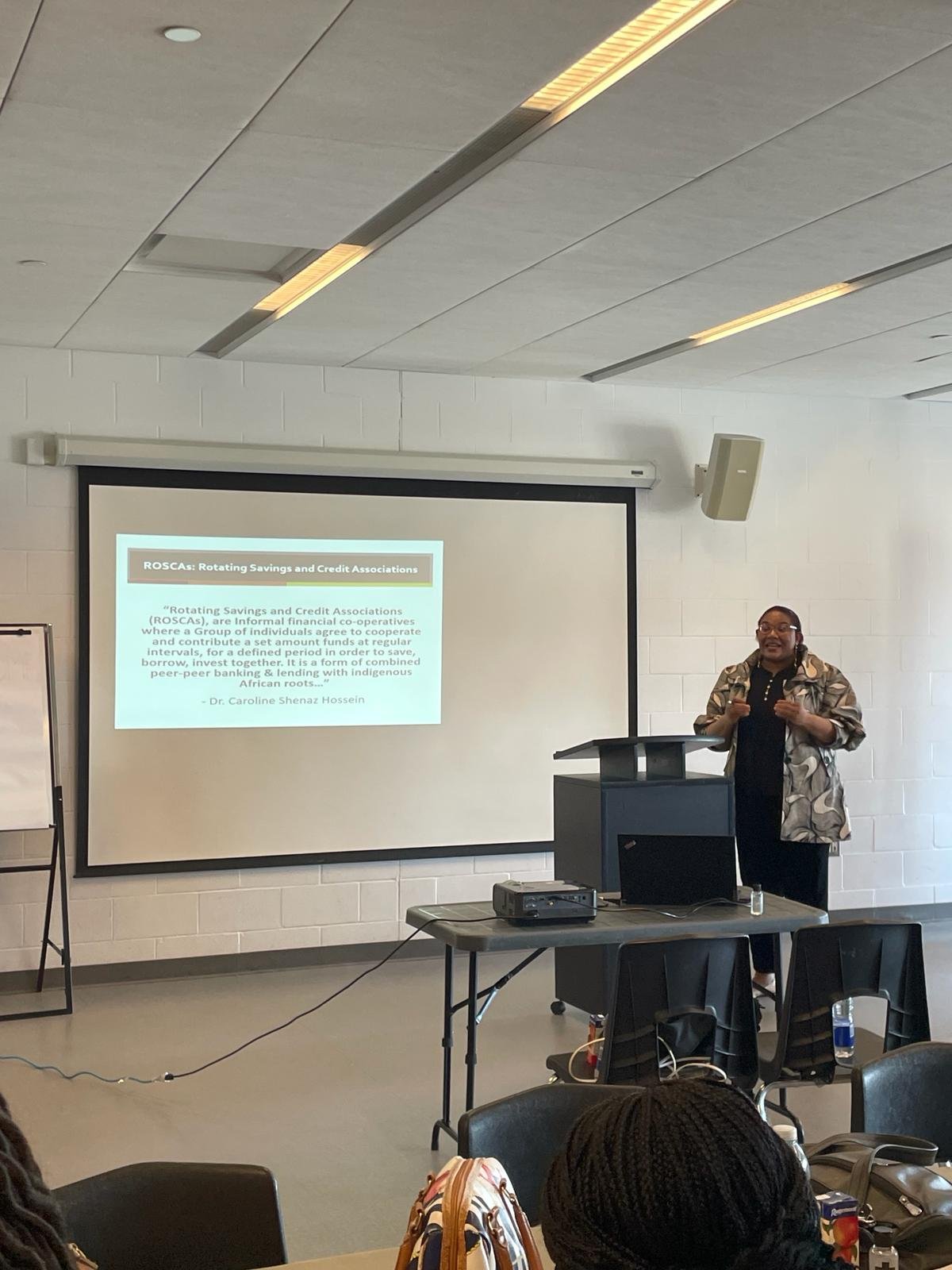
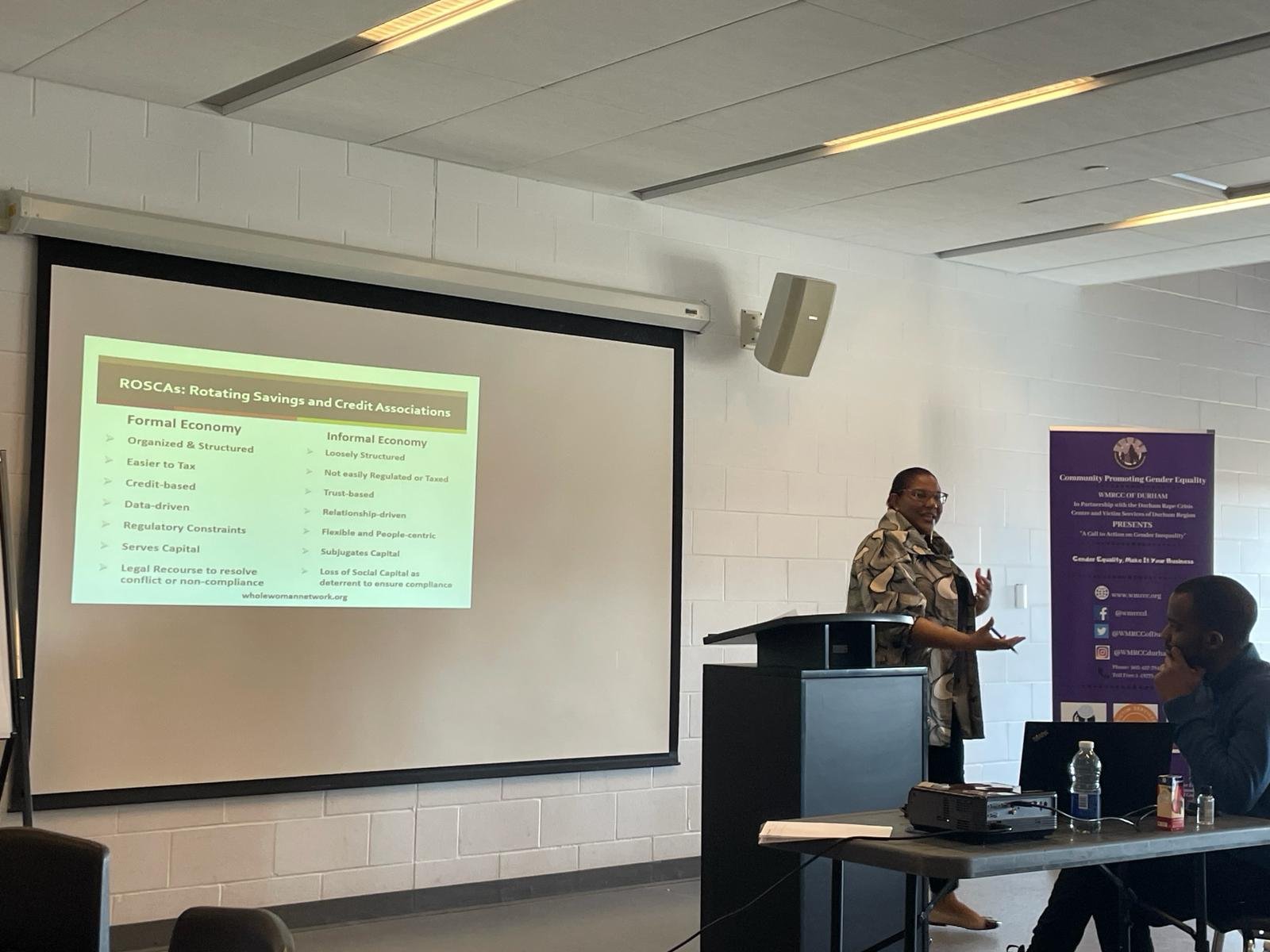
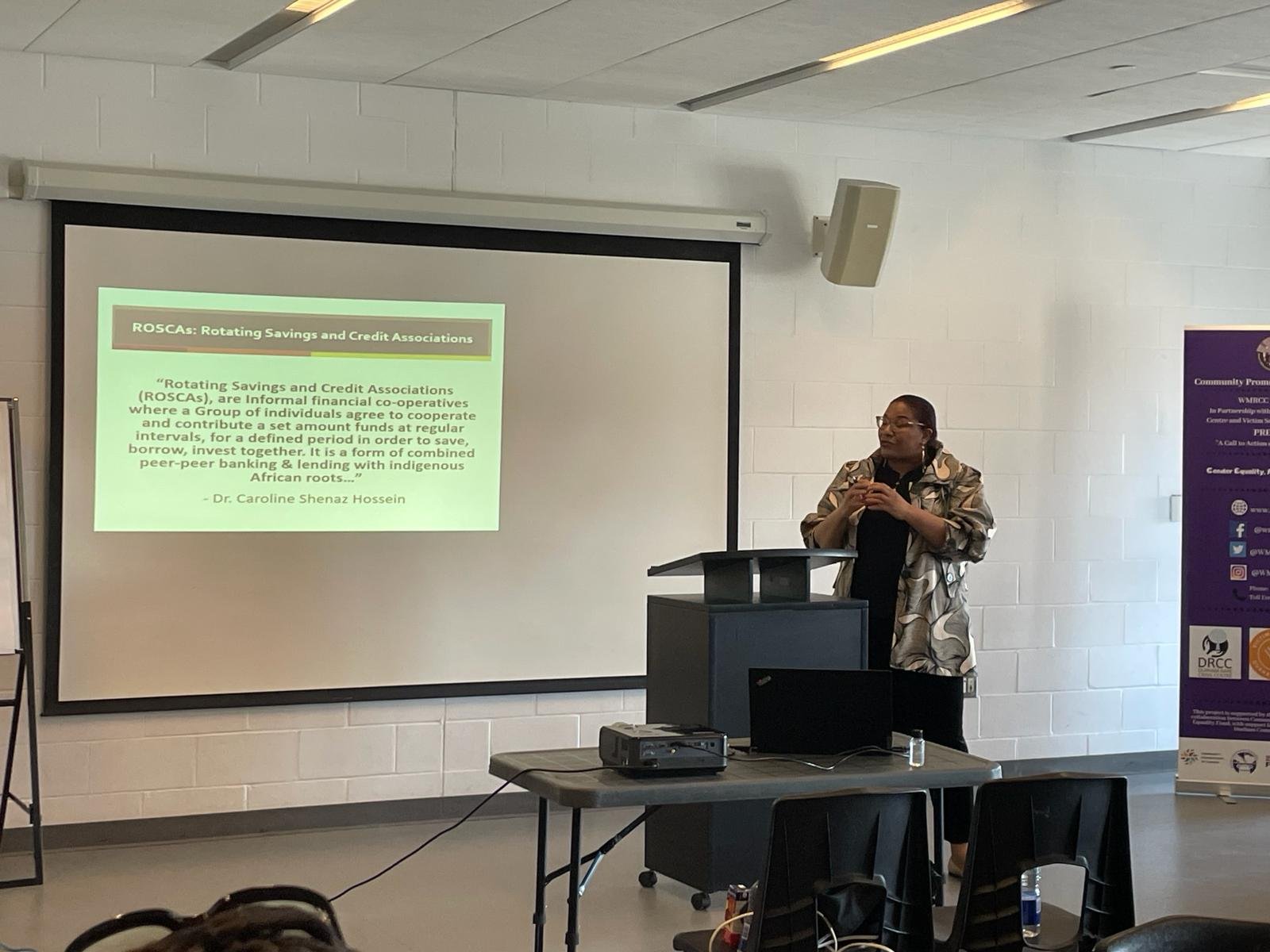
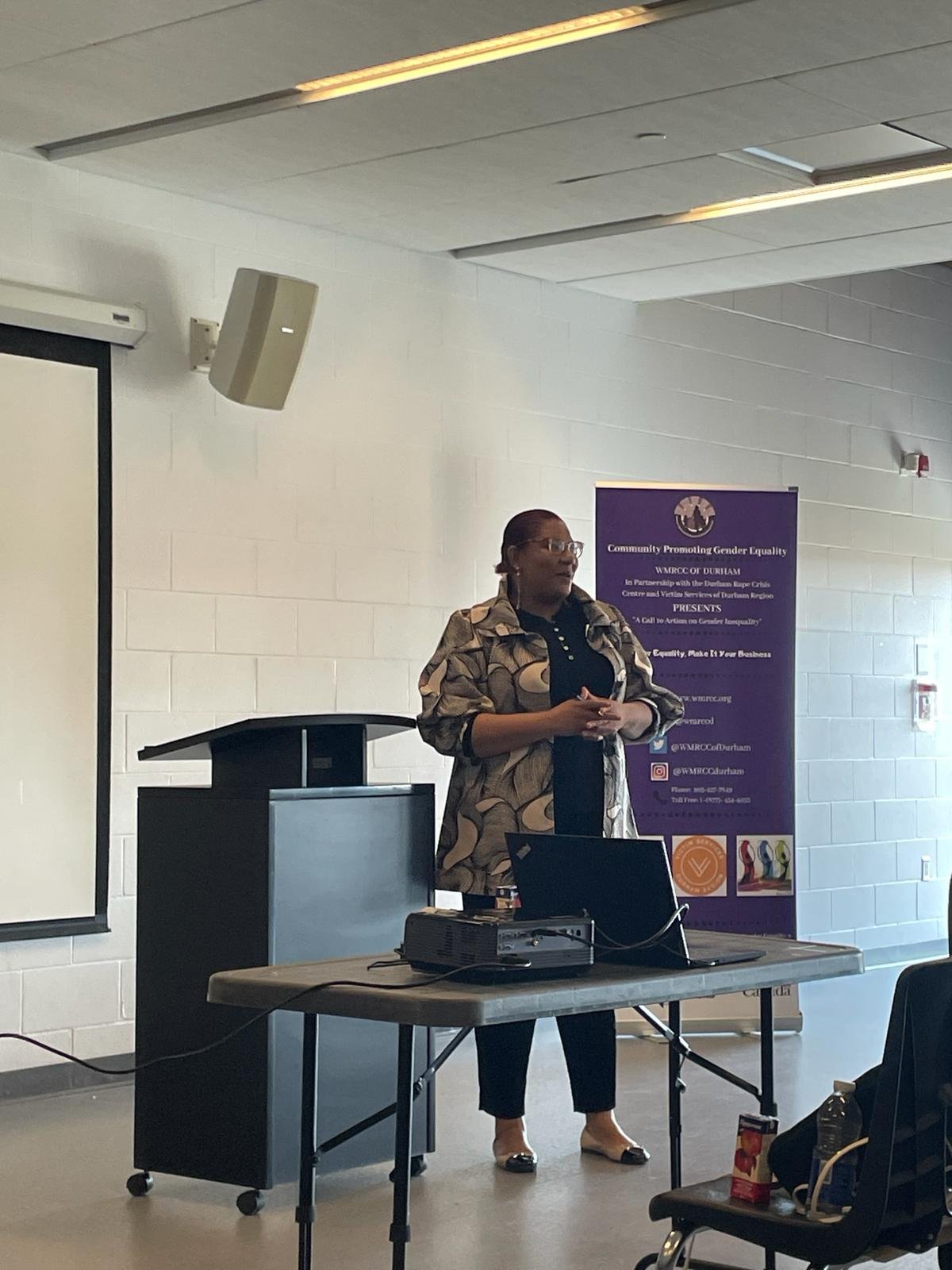
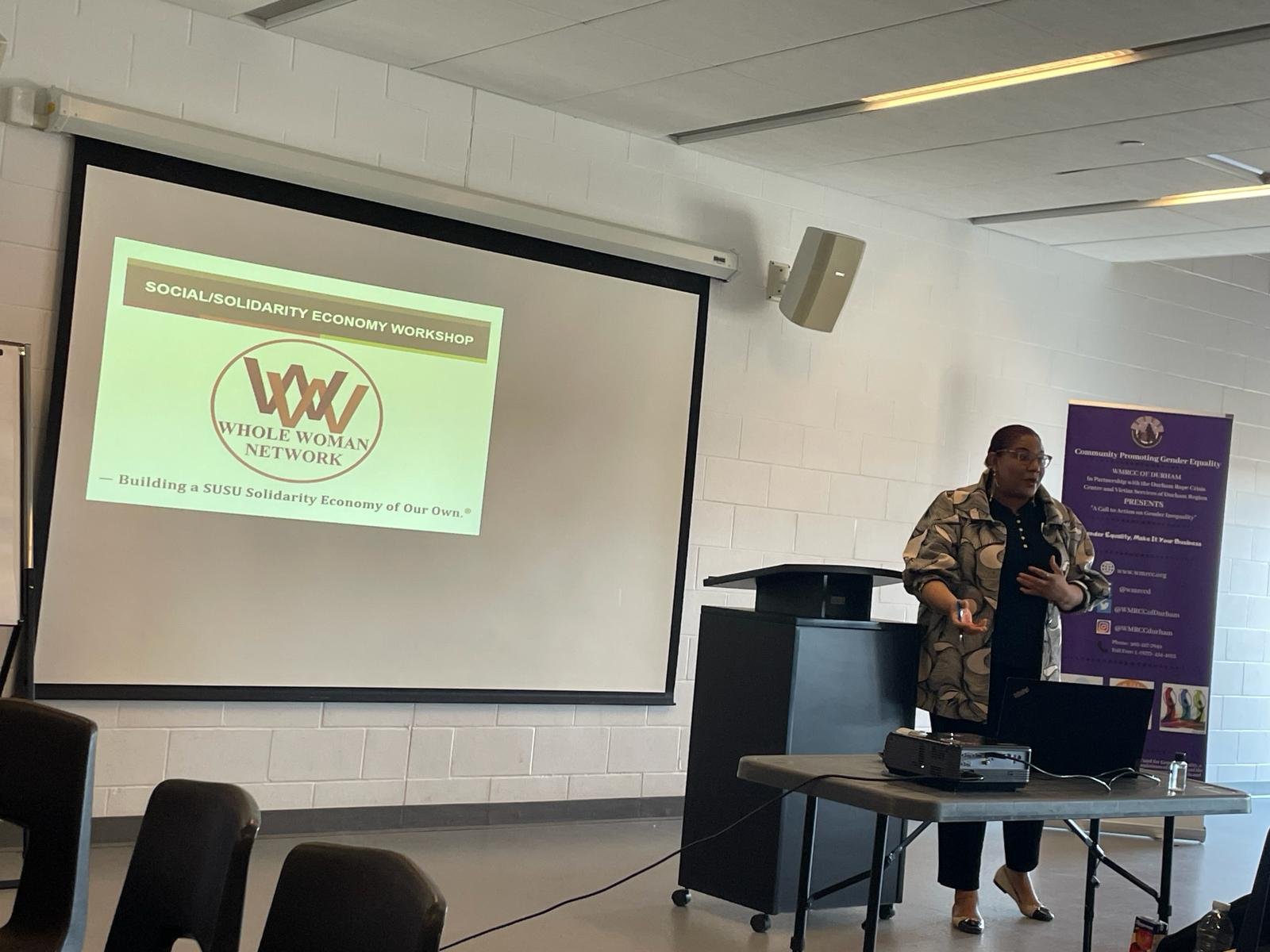
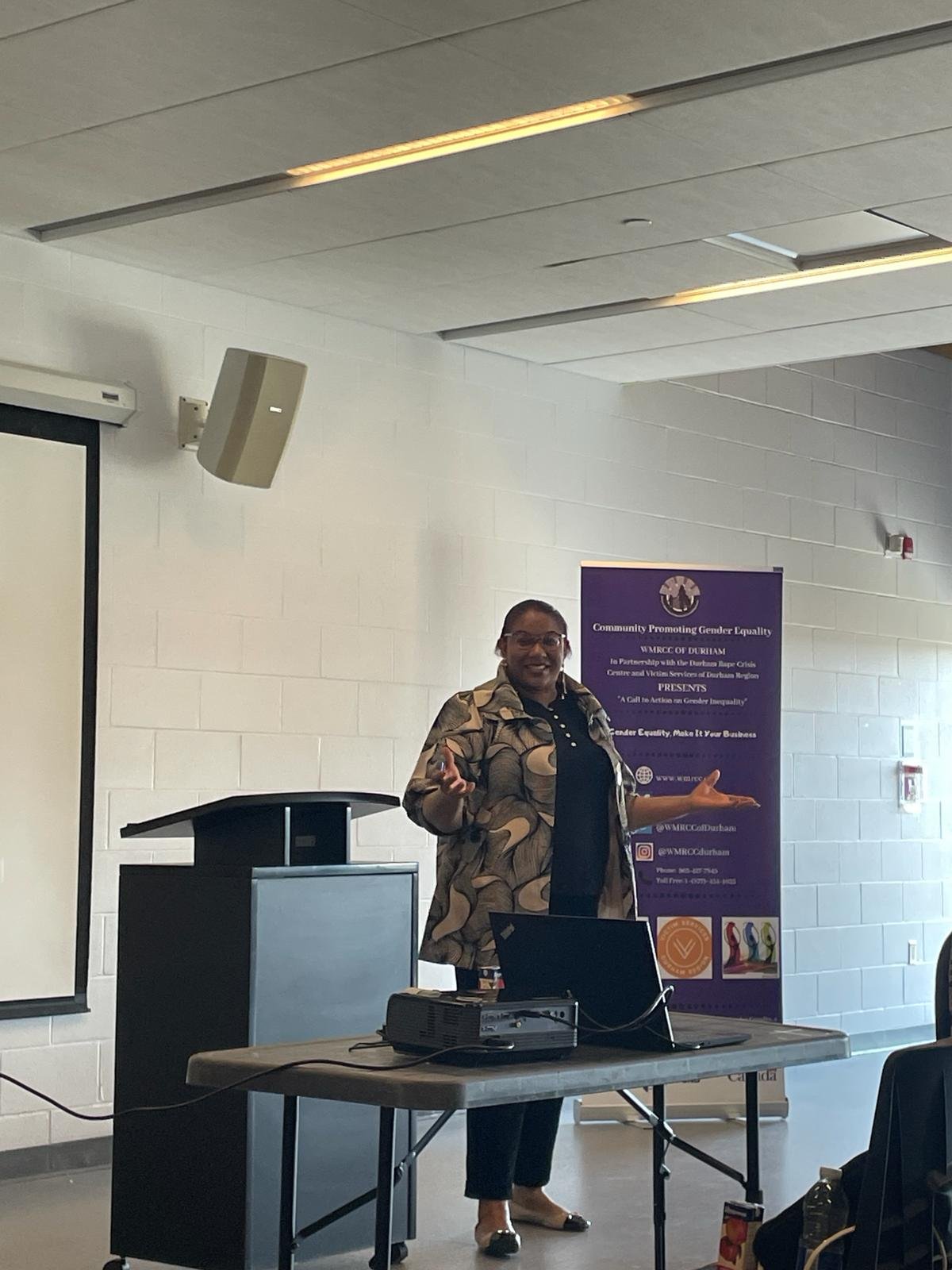
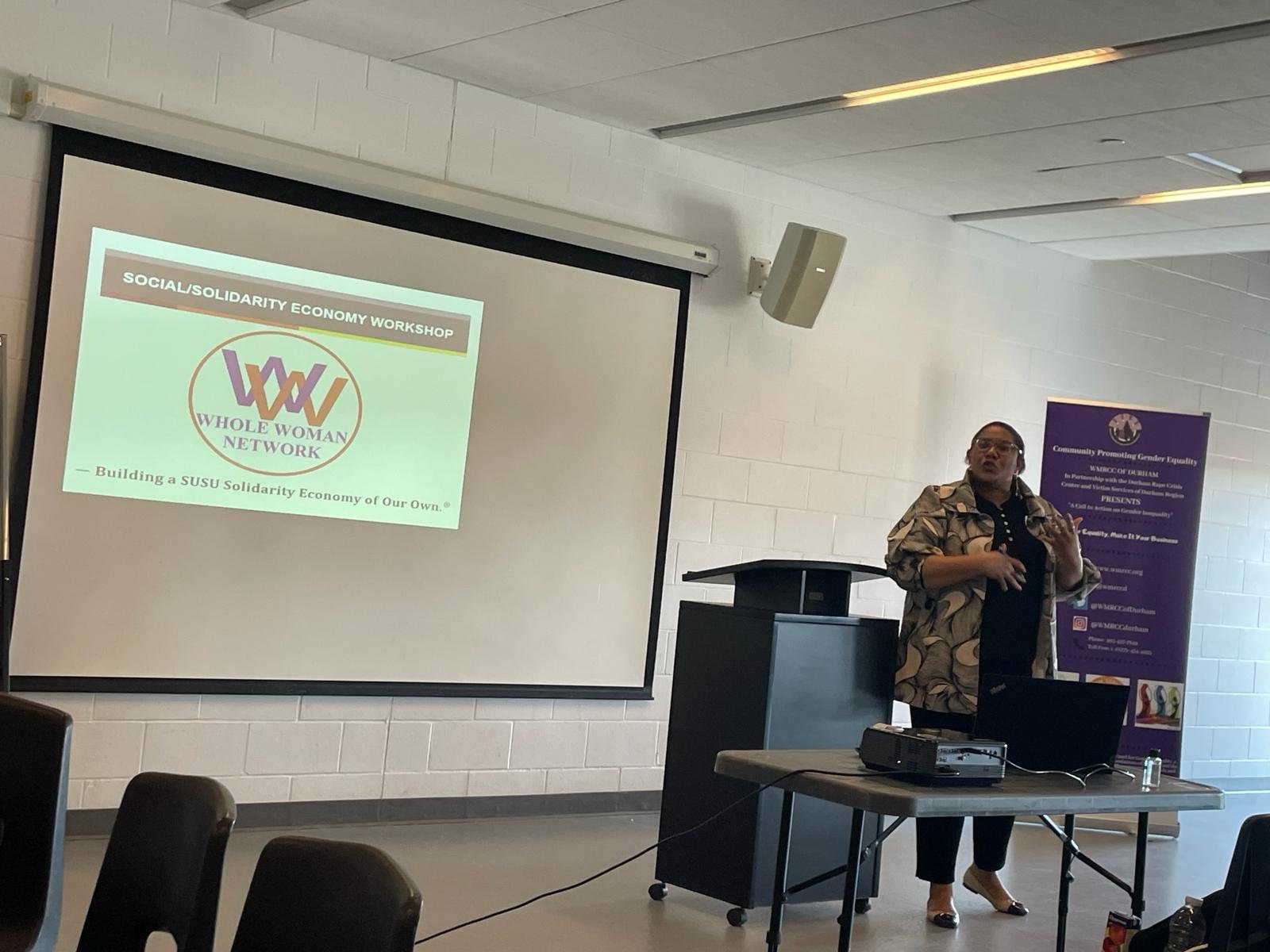
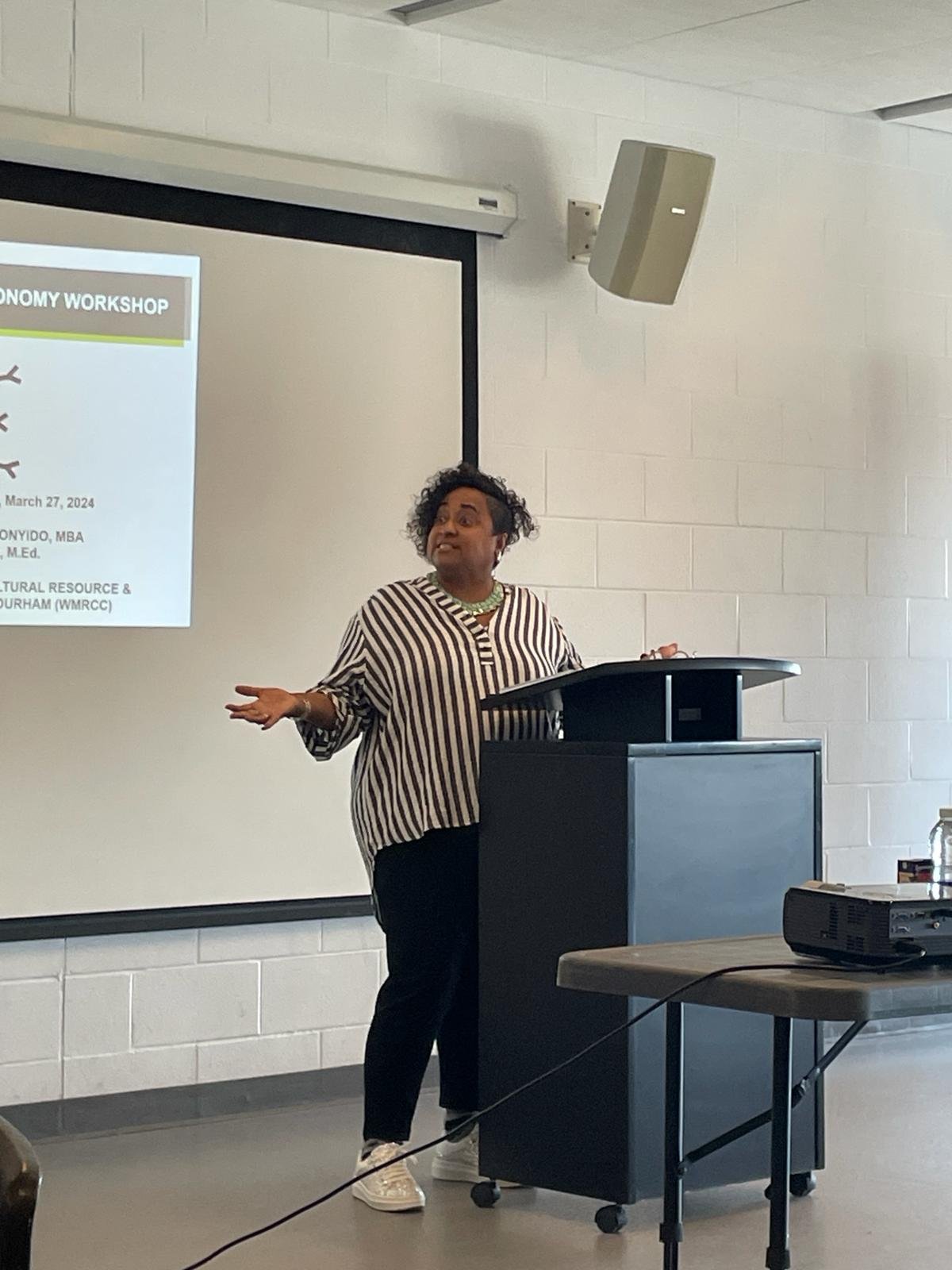
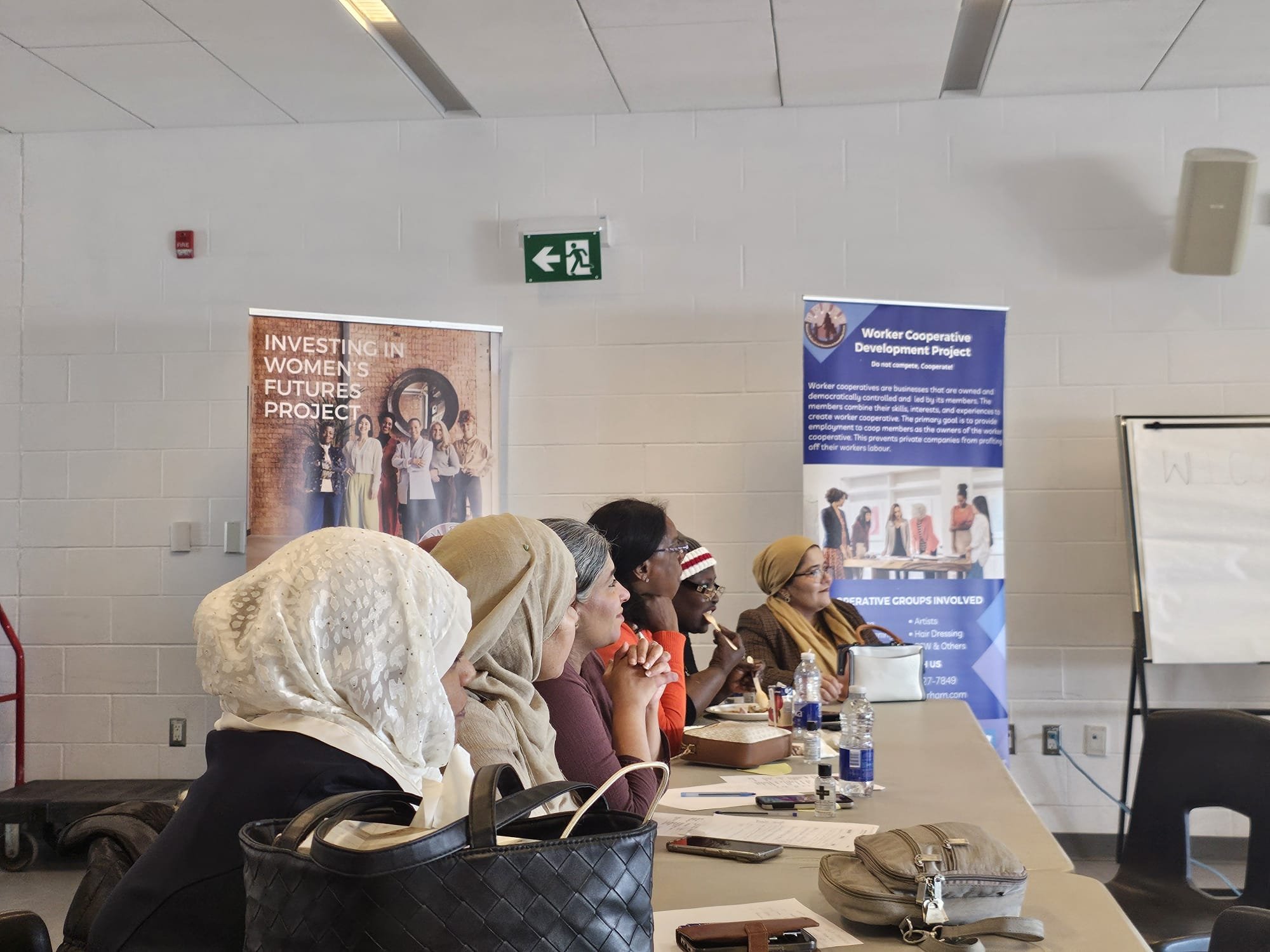
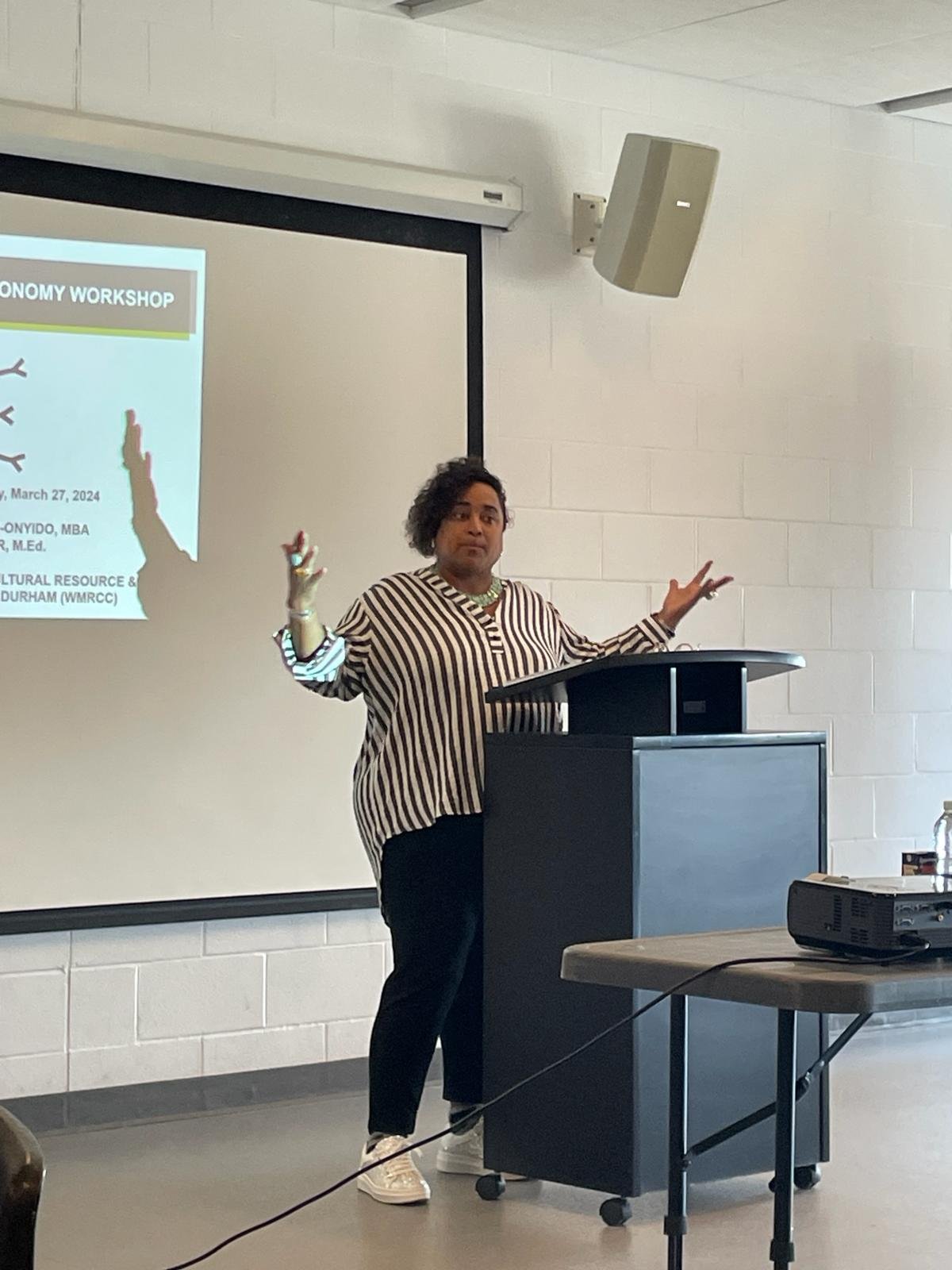
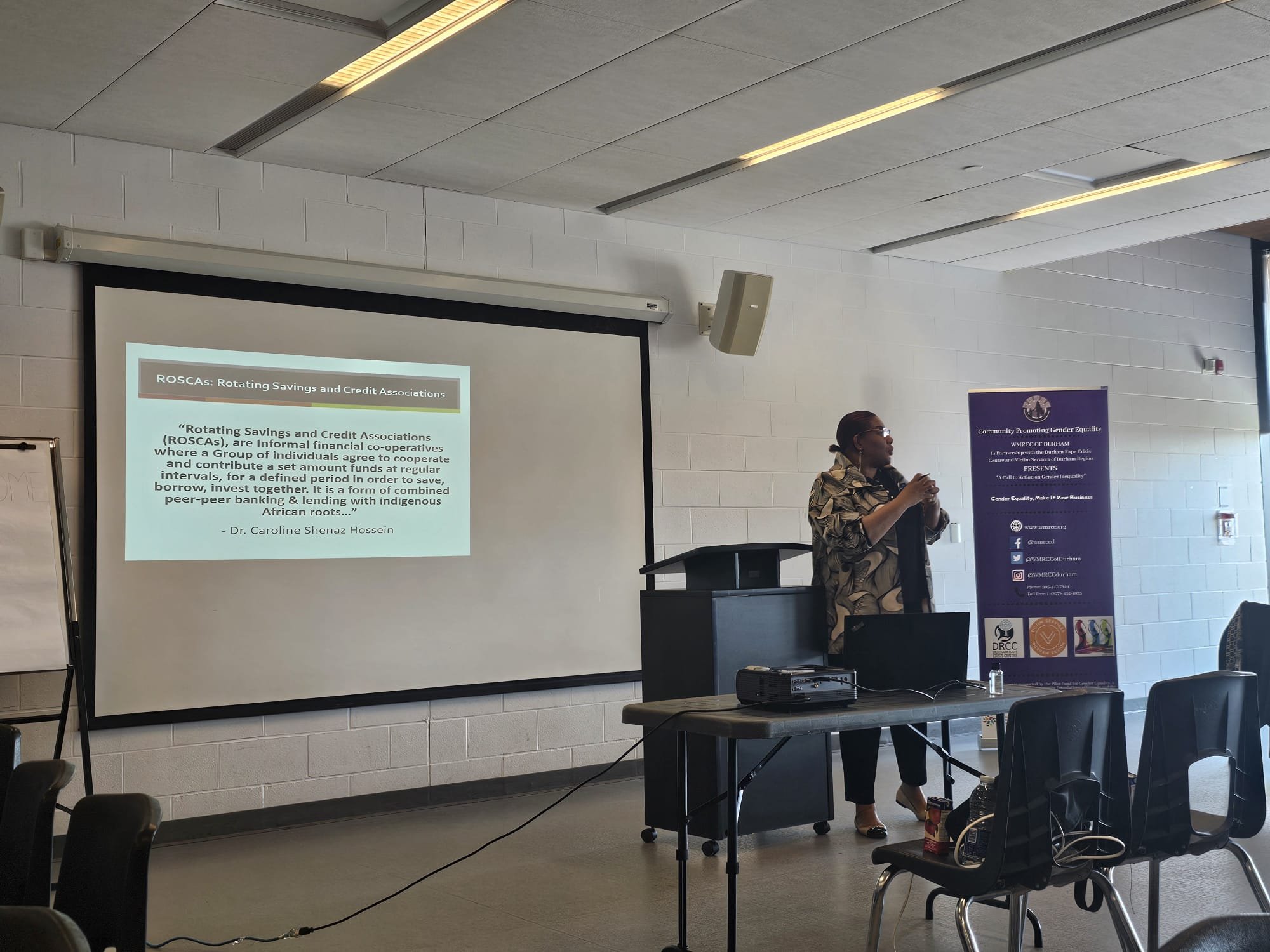
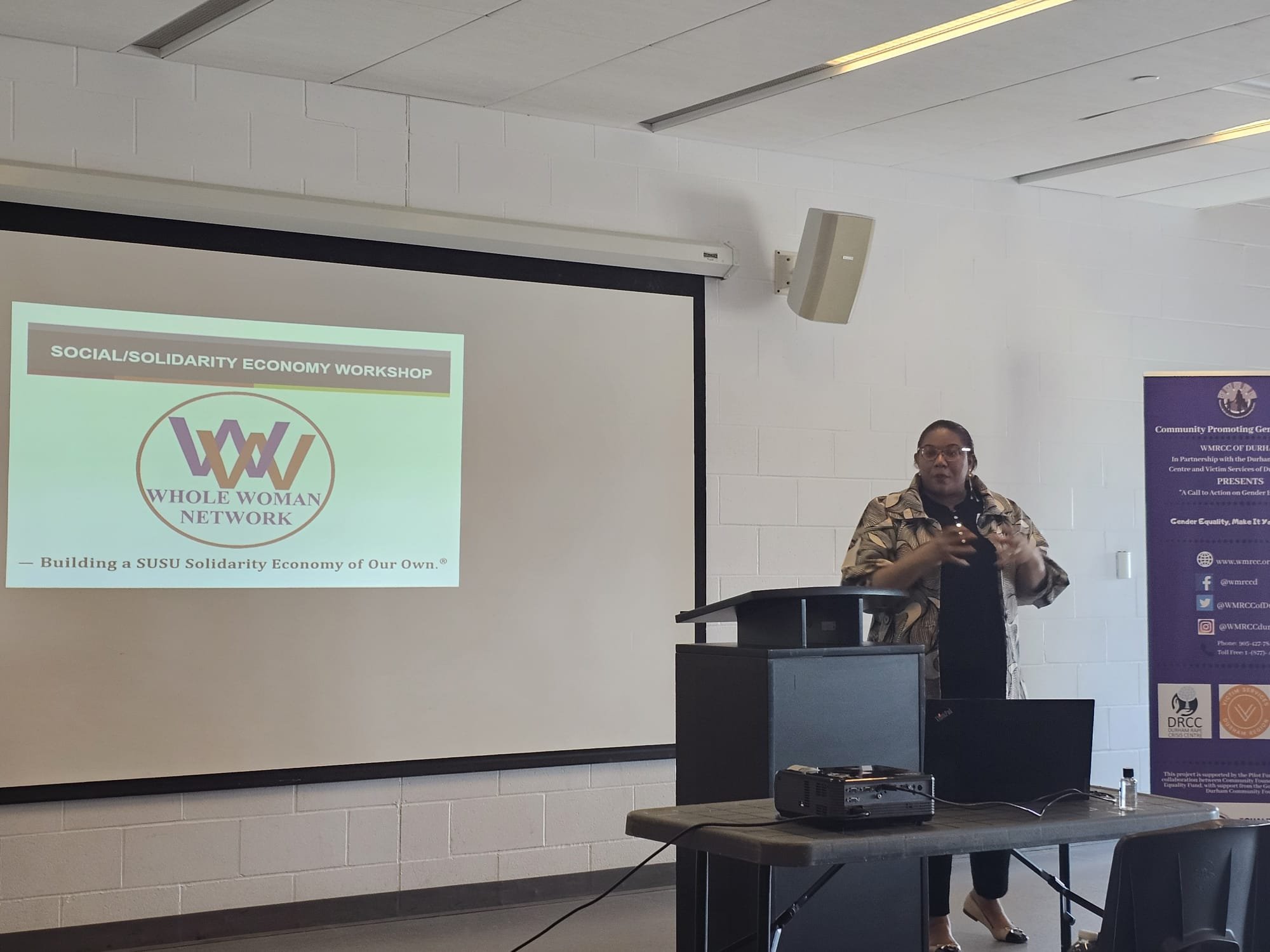
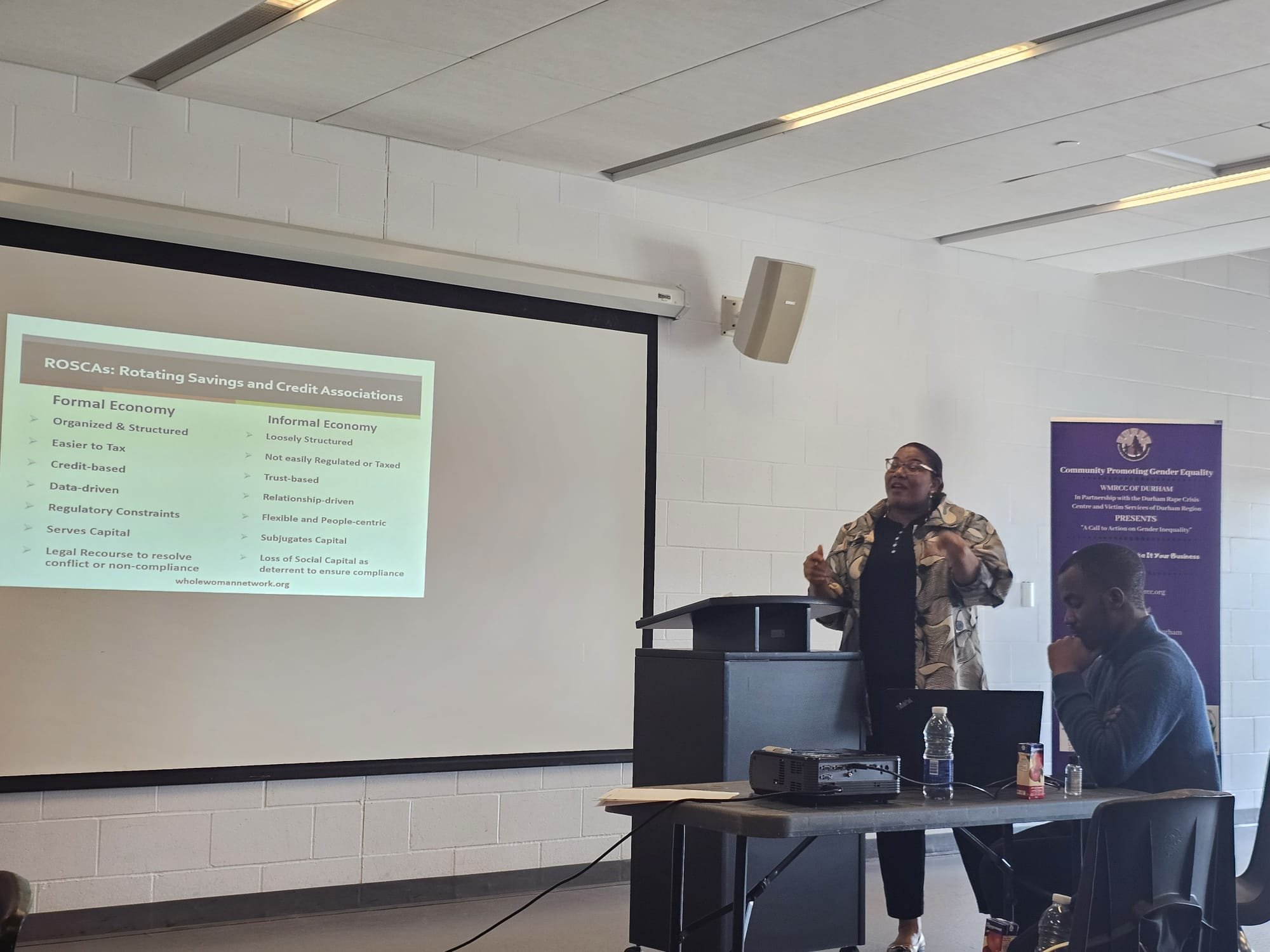
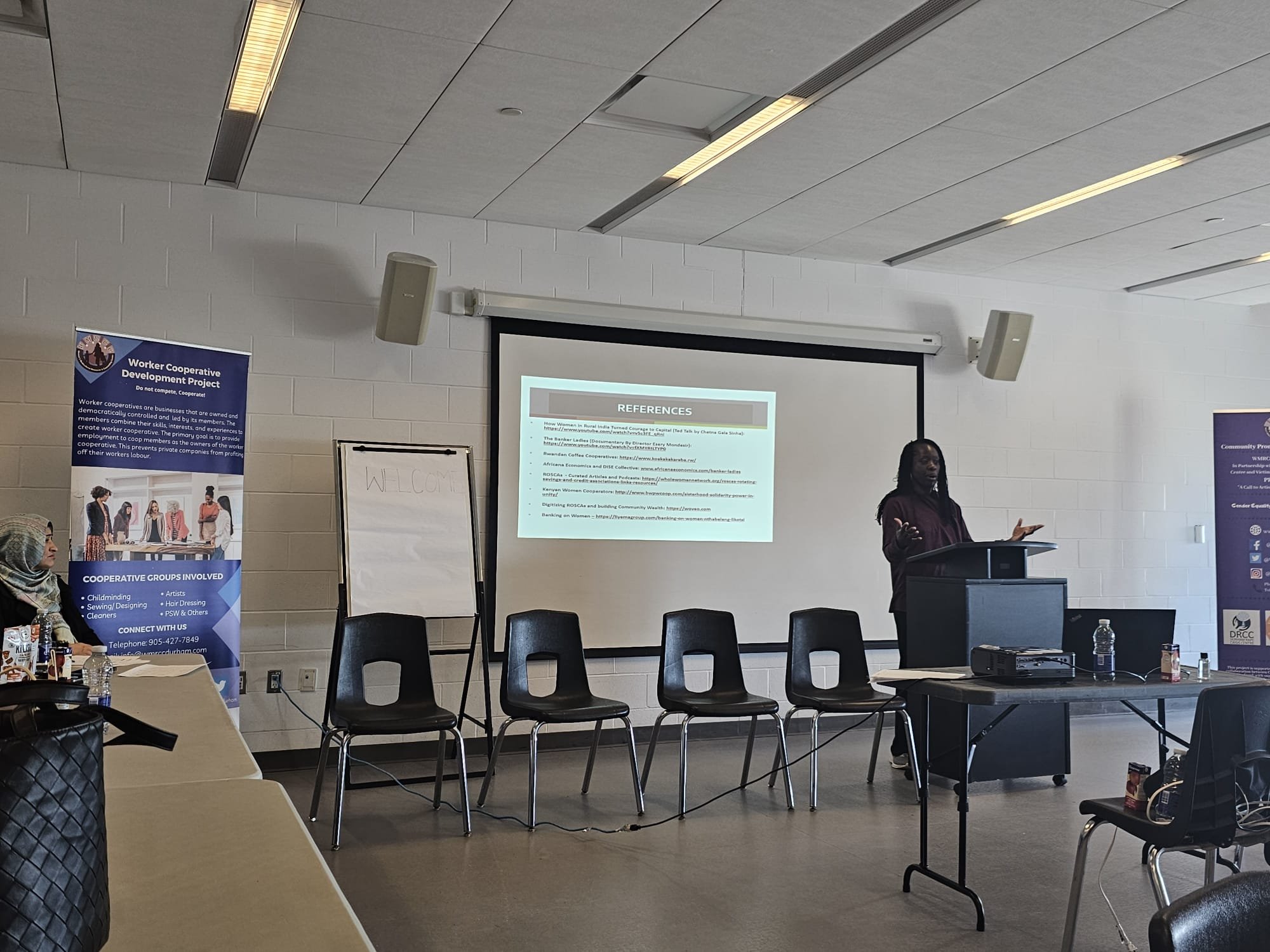
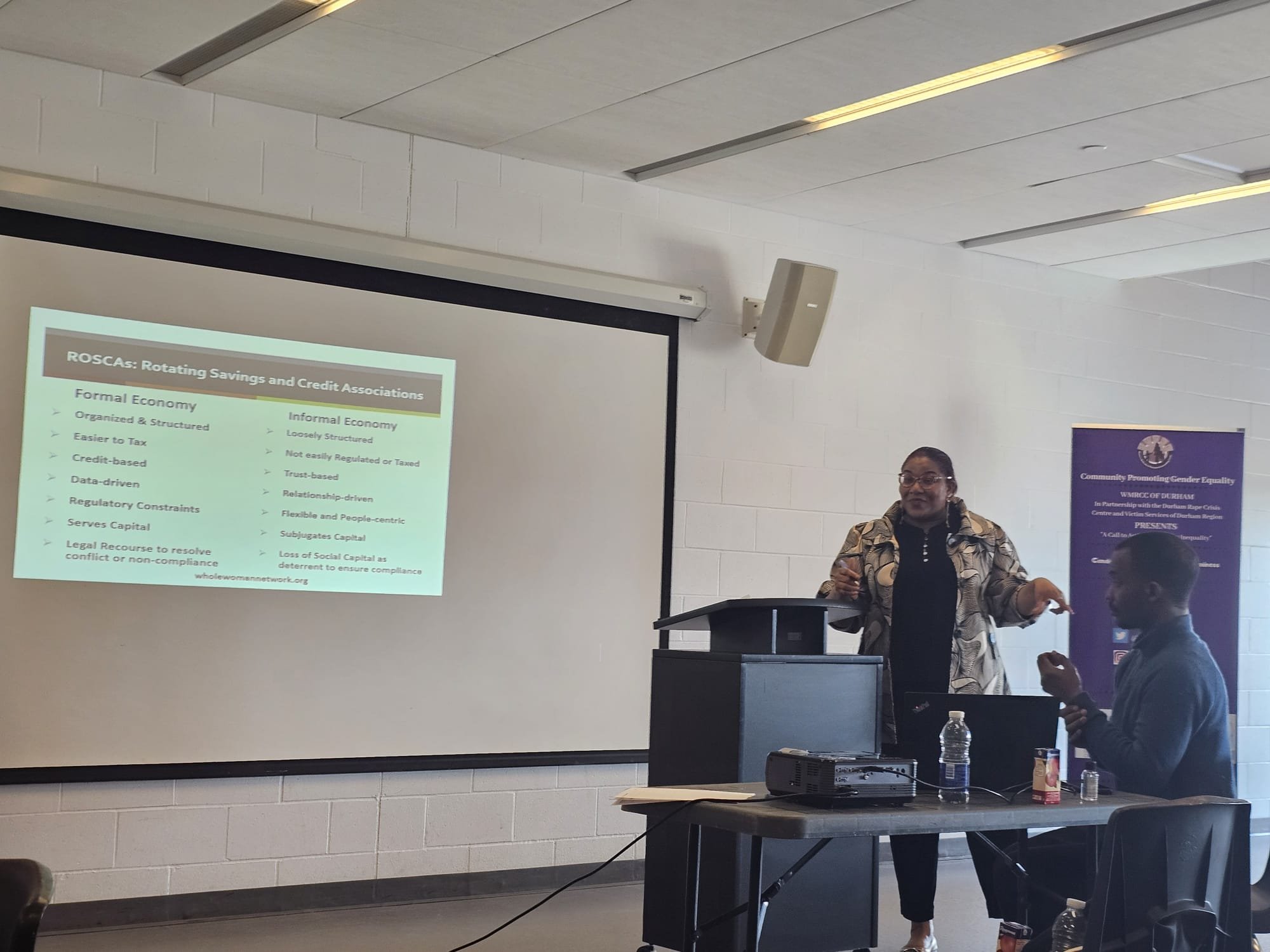
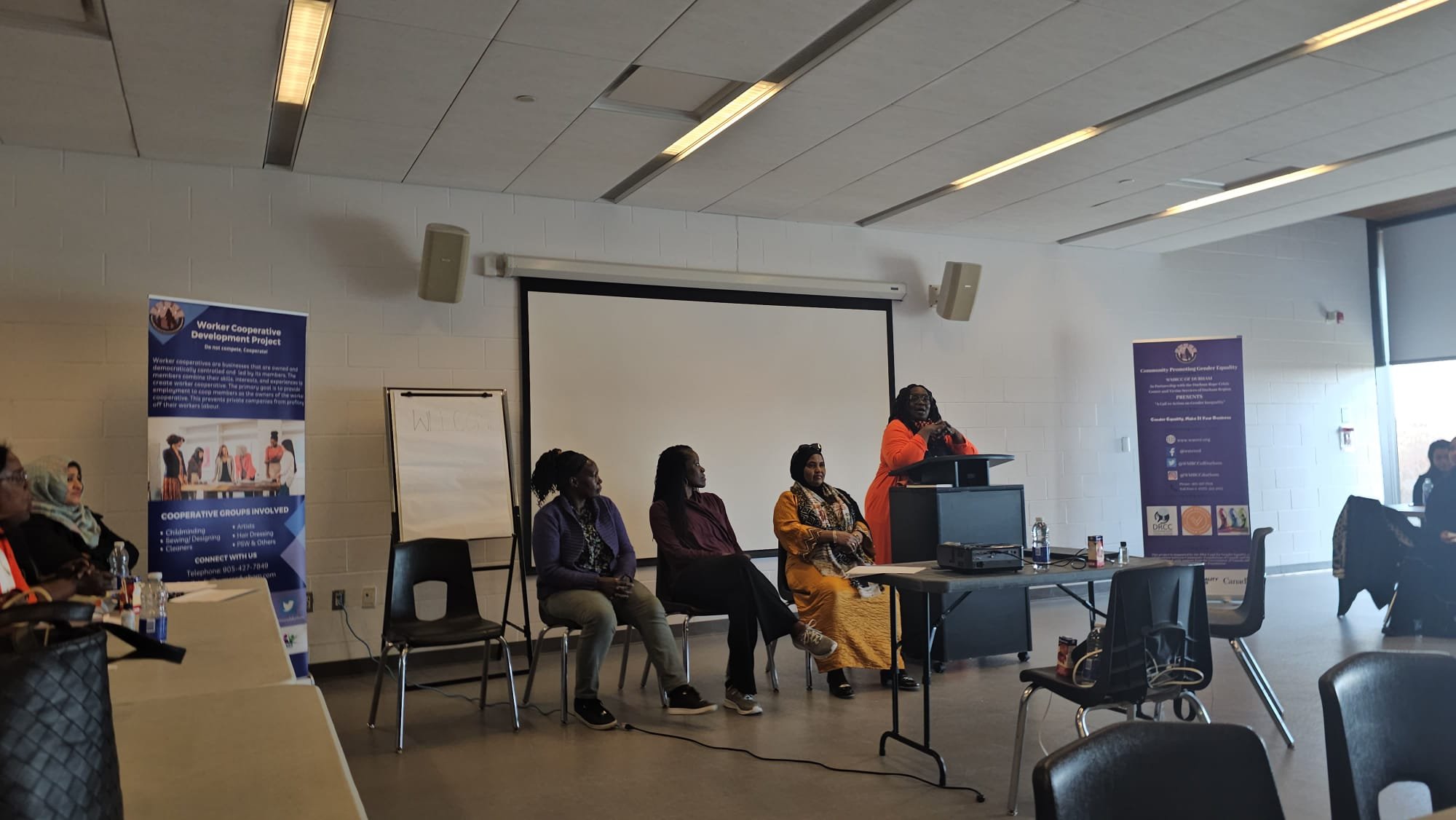
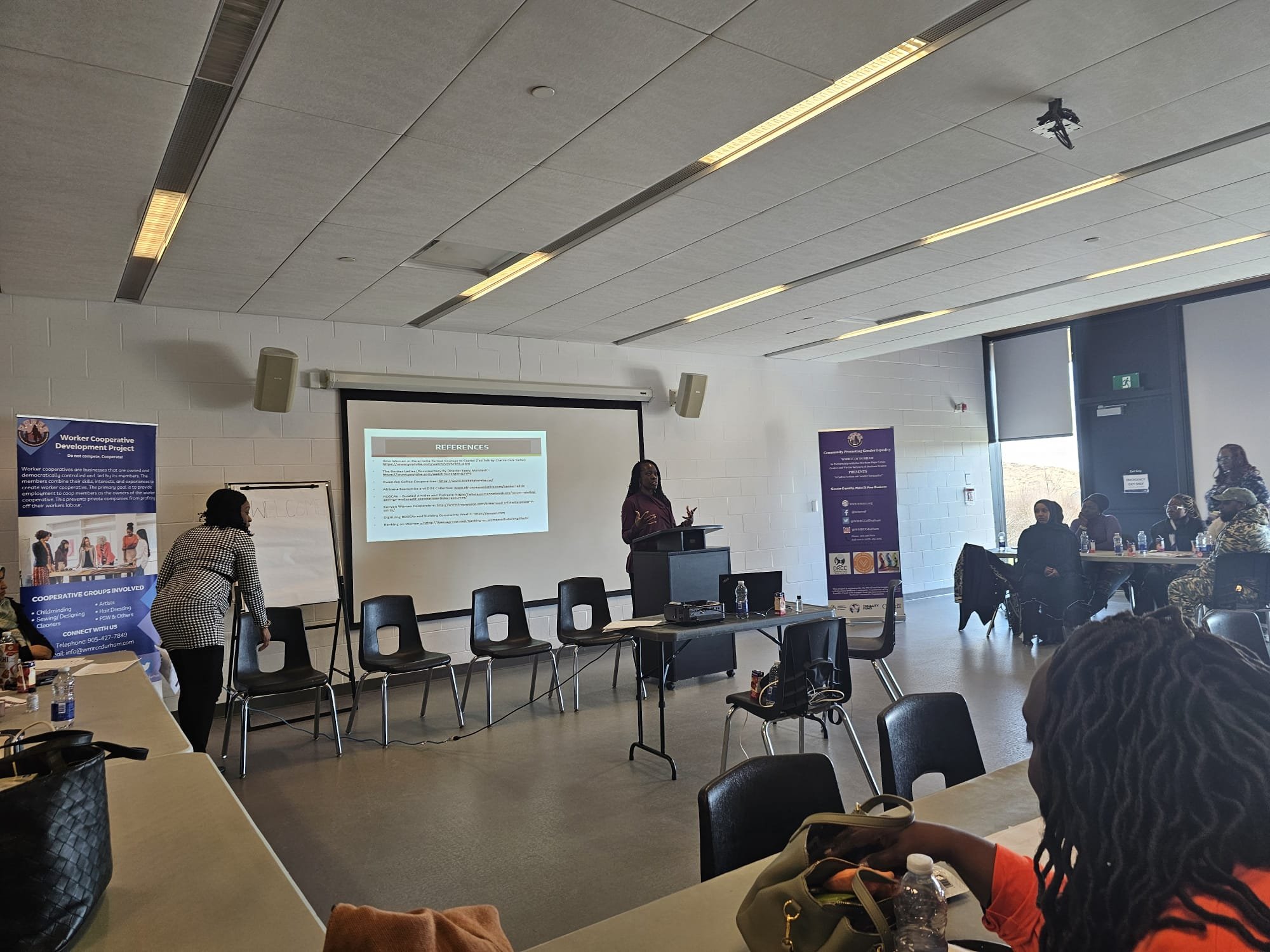
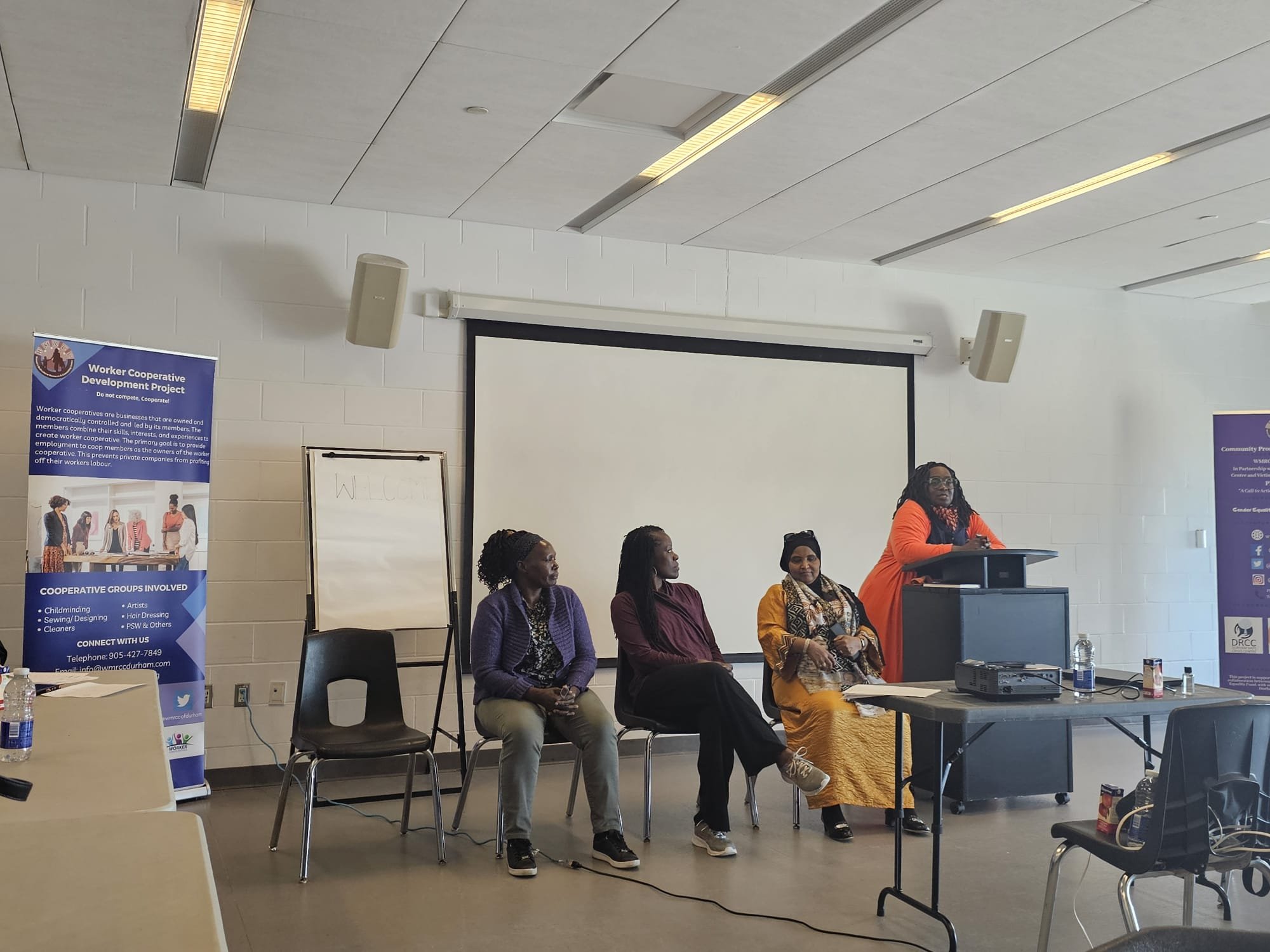
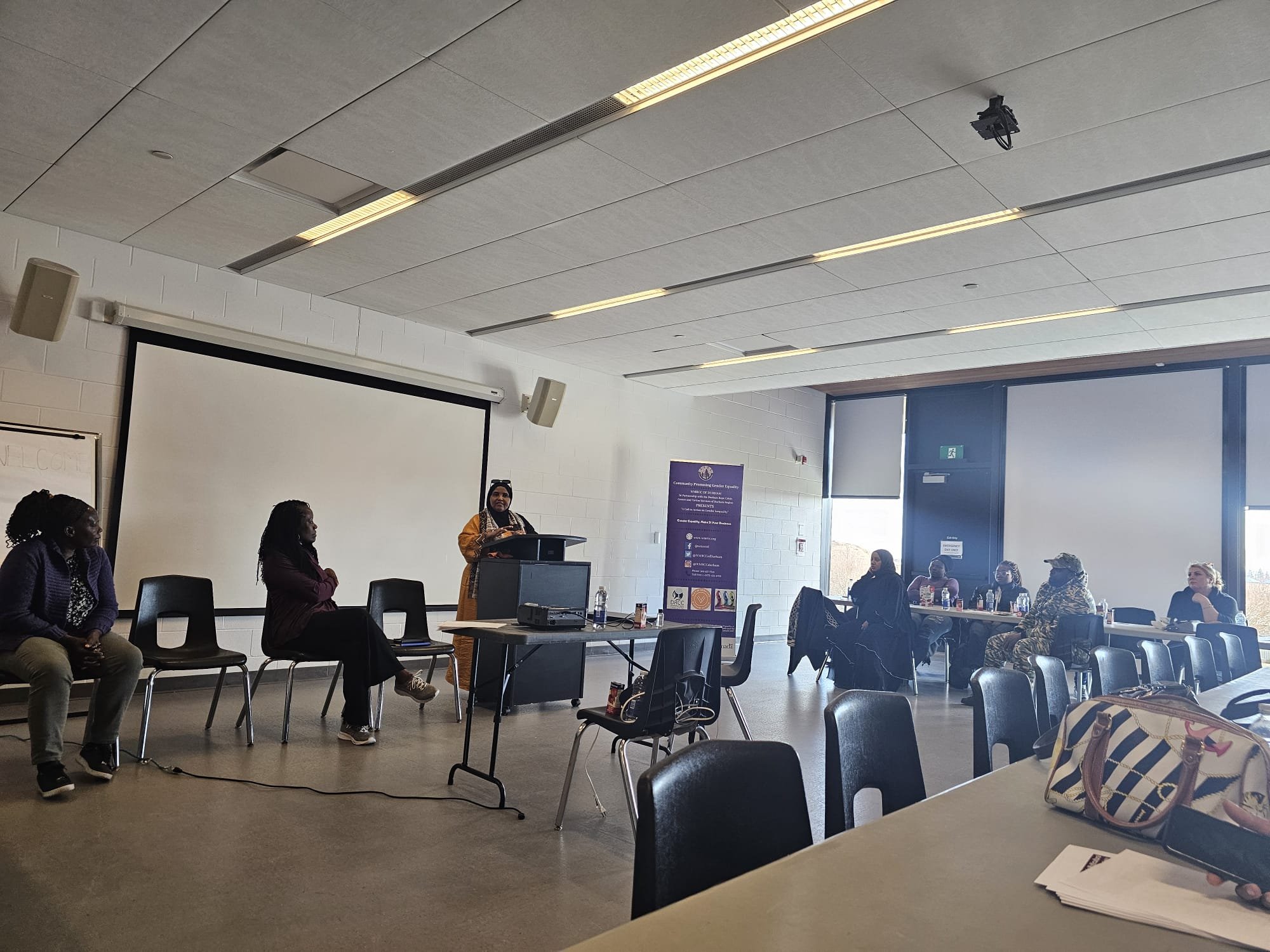
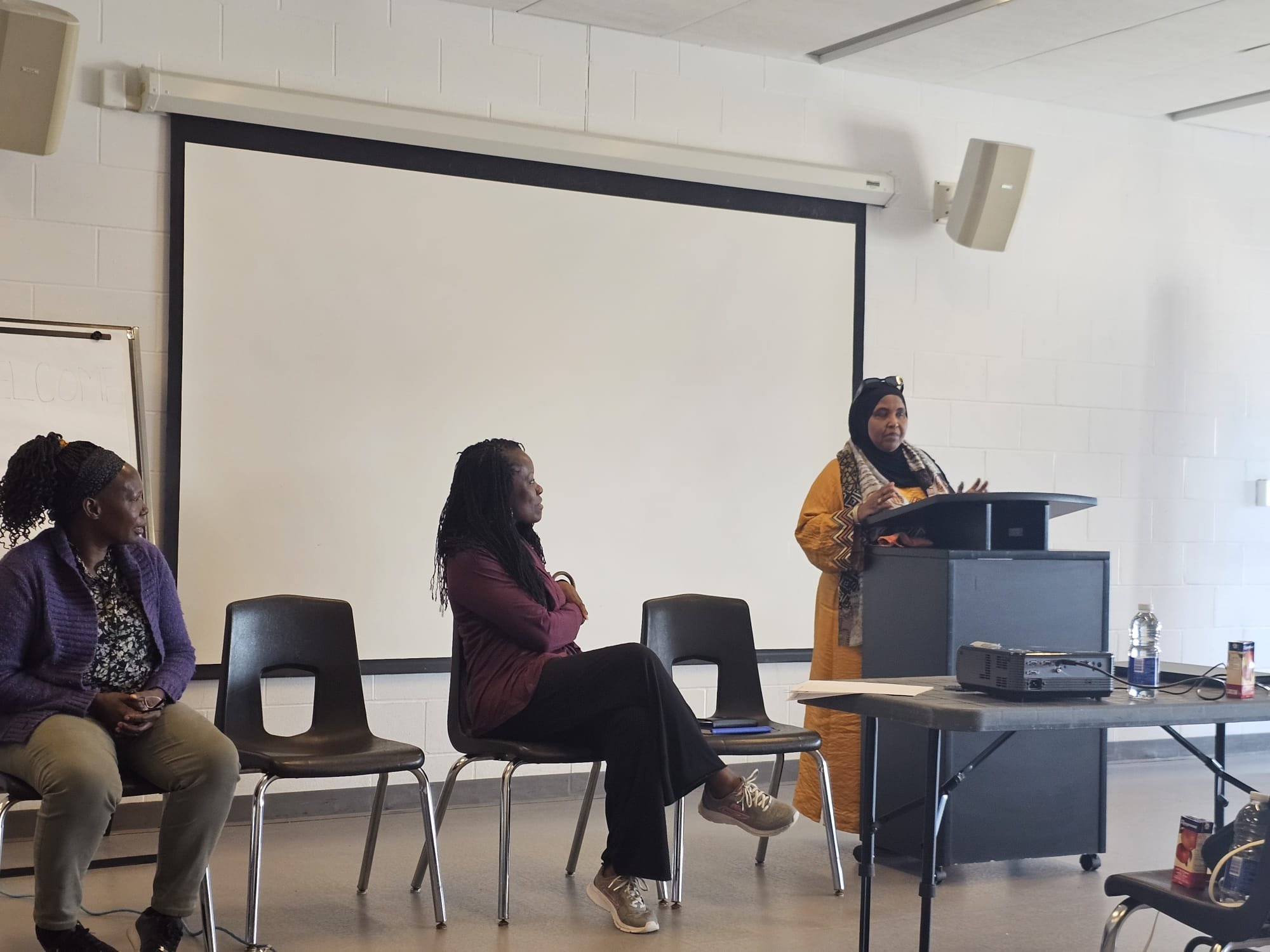
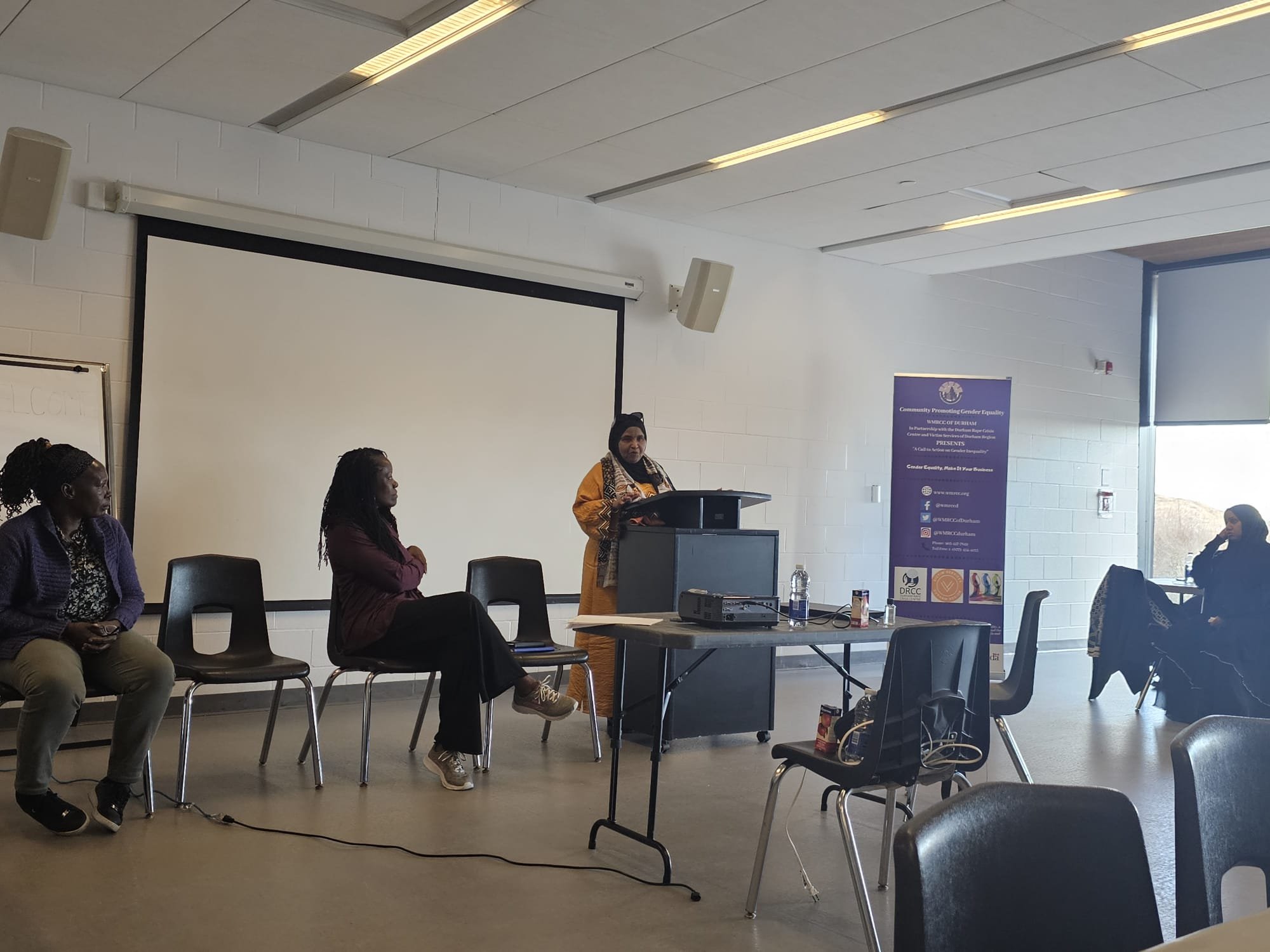
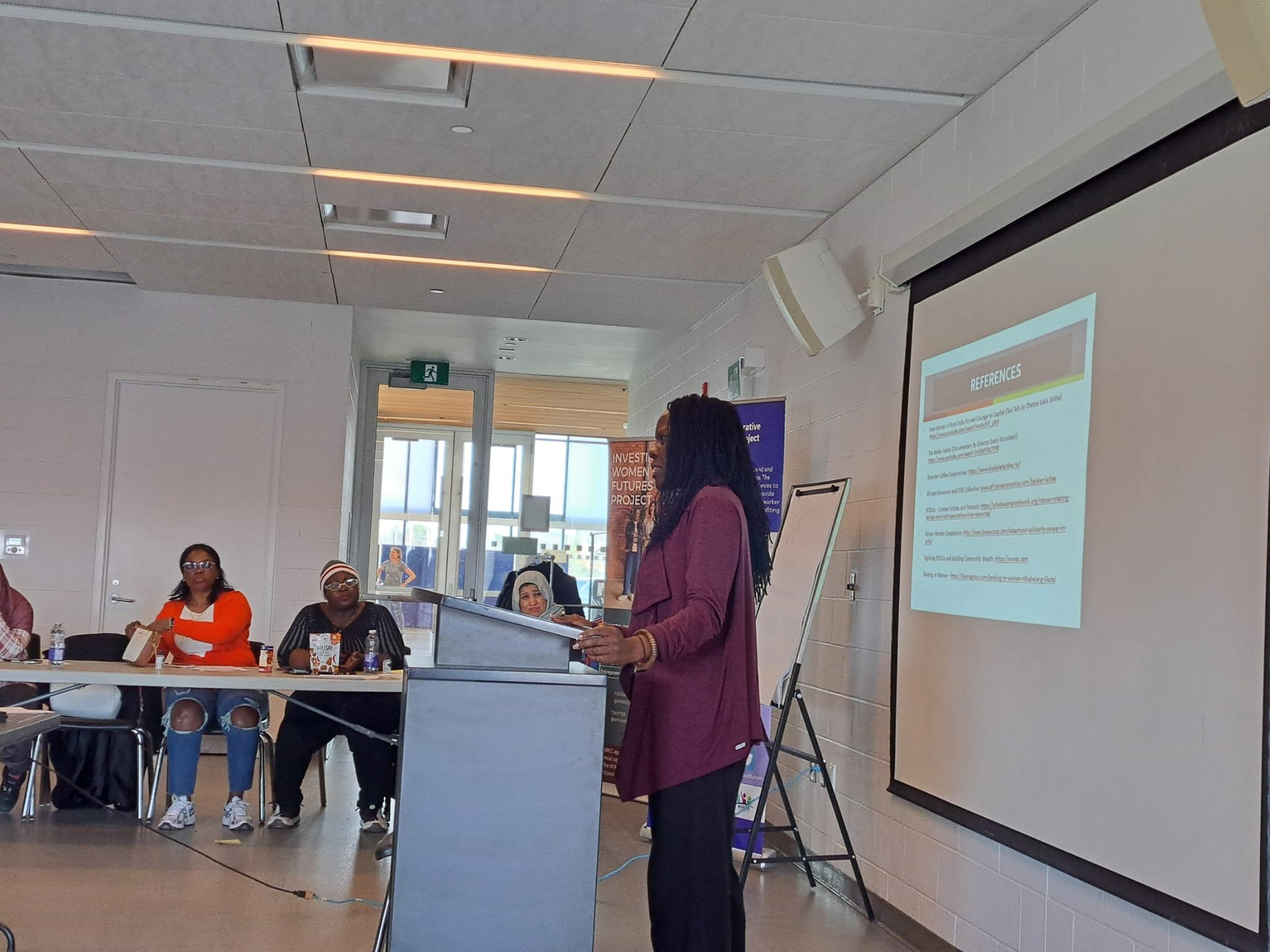
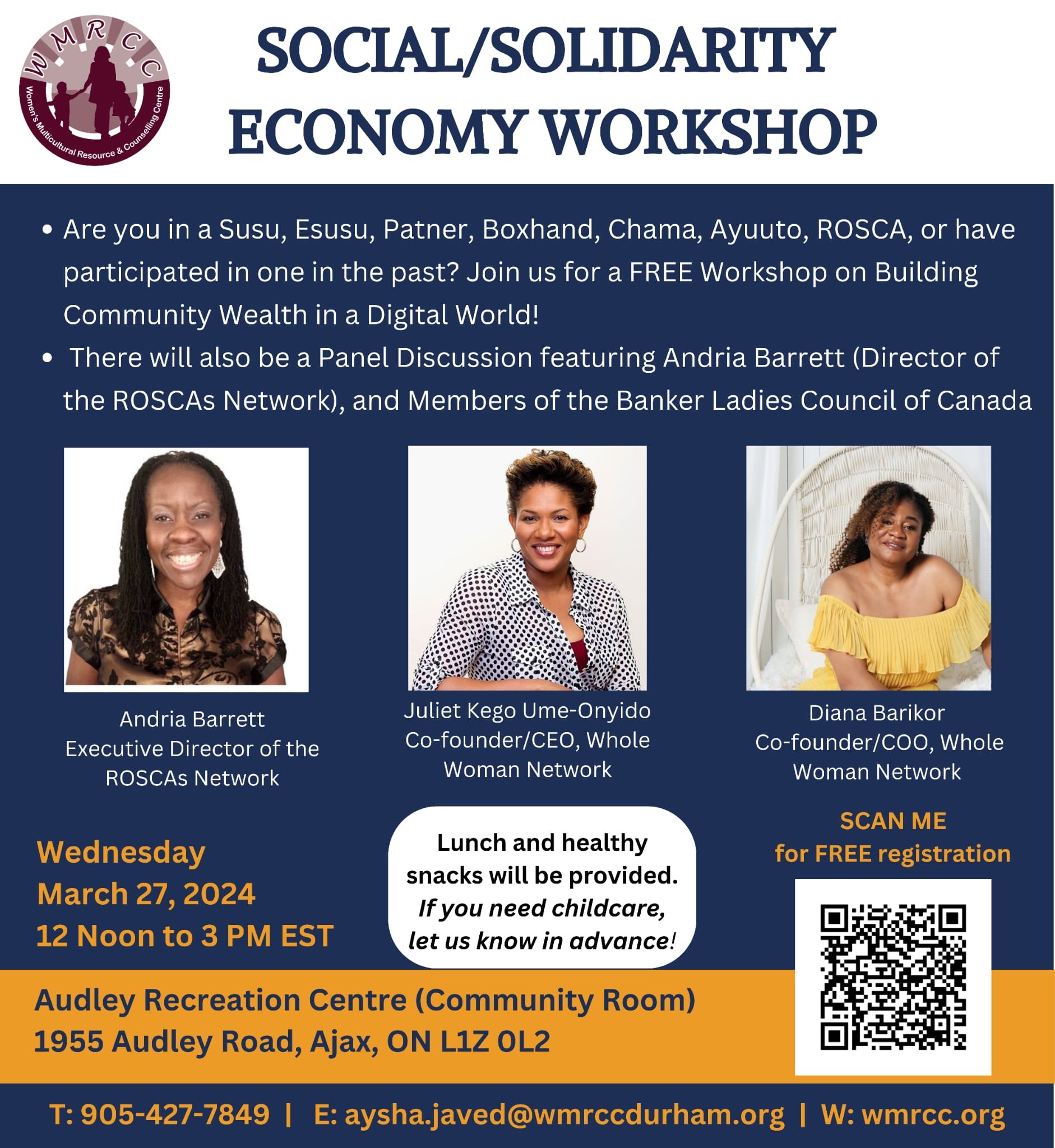
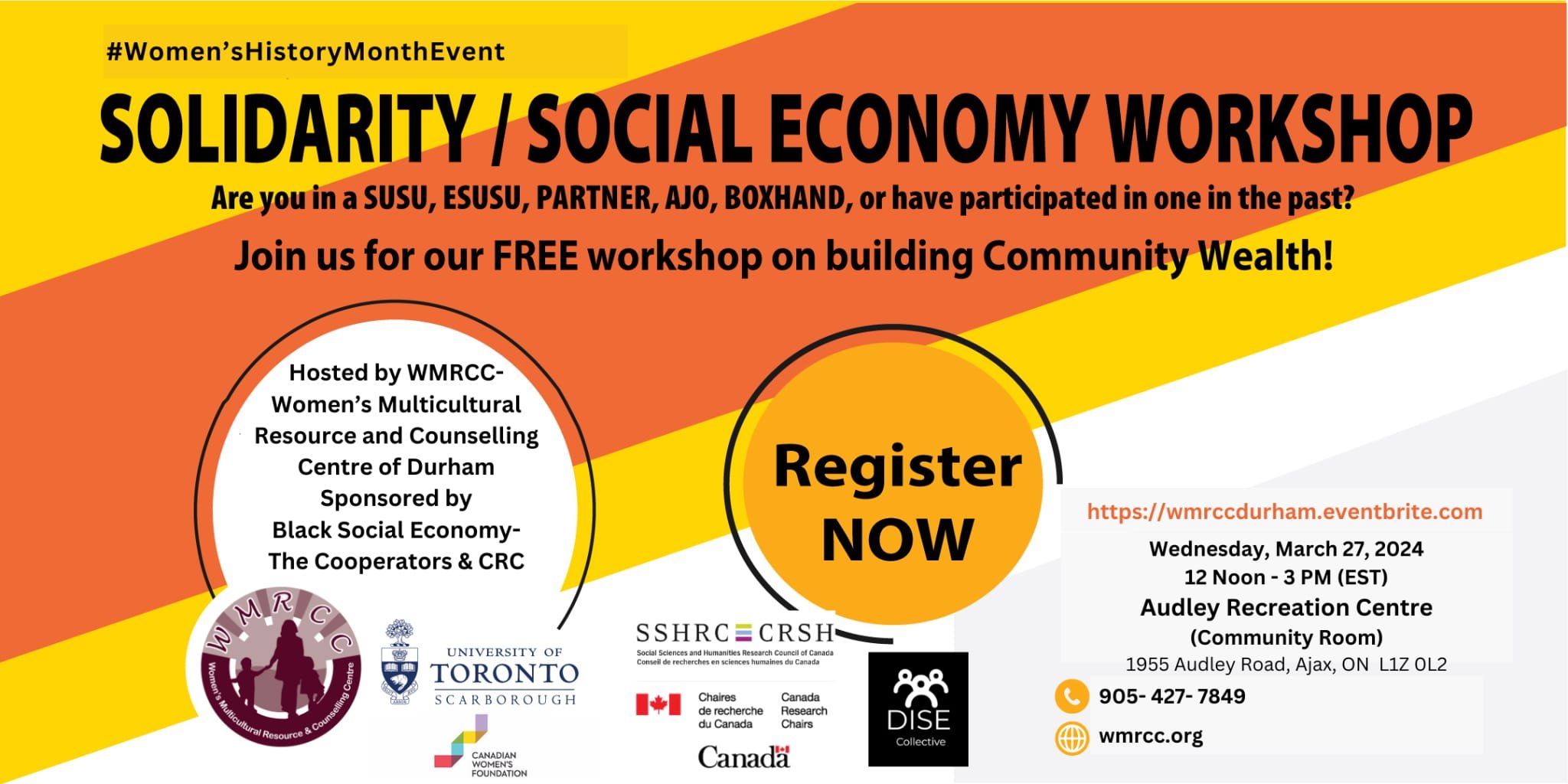
Virtual Roundtable Discussion led by UTSC's Students
Join Senior UTSC International Development students for a virtual roundtable event on human rights, global development and Palestine. Led by emerging feminist academics, Serena Bahadur, Leen Chanouha, Afomia Selemon, McKenna North, and Vyshnavi Kanagarajamuthaly.
You’ve seen it splashed across your TV, your newsfeed, and your social media. In the digital world, you almost can’t escape it - the ongoing heartbreak occurring in Palestine, Sudan, and the Congo, just to name a few. While these narratives and their imagery may dominate our digital spaces, in real life the deafening silence is only growing.
This is not a time for silence.
This is a time that begs the question, does everyone truly have human rights? This is a time for civilized, courageous, and open-minded conversations. A safe space where we may share our opinion, without fear of shame or condemnation when we take a side.
In a world becoming increasingly polarized
The option to be neutral is disappearing just as quickly. Today’s headlines are tomorrow's history. We are living in a moment of crisis, war, genocide and human rights violations that will not soon be forgotten. We need to create a space for these conversations, so that we can look back on this point in history and remember that we took a side, and spoke up in the name of human rights.
When: Friday March 22nd, 7pm-8:30pm EST
Where: Online
By Invitation only. Recording to be shared. Registration is required. Contact serena.bahadur@gmail.com
Join us as we support Palestine in our refusal to be silent on a matter of human rights. Let’s stand together. See you there!
Watch the virtual roundtable discussion.
UTSC’s International Development undergrad students Afomia Selemon, McKenna North, Leen Chanouha, Vyshnavi Kanagarajamuthaly, and host Serena Bahadur.
Remarks and questions from UTSC's academic community, including Dr. Leslie Chan, Dr. Anne Emanuelle Birn, Dr. Girish Daswani, Dr. Antonio Torres-Ruiz, Dr. Clelia Rodriguez, and Dr. Caroline Hossein.
Student Researchers
Alison Francis (she/they) is a Jamaican-born MA student in Political Economy at Carleton University. Their research lies at the intersection of work, law, and class, informed by Black feminist thought. It focuses on solidarity economies, Afro-Indigenous futurism, and the effects of migration and digital capitalism on global workers.
Current
Alison Francis
Naila Reaz
Naila recently earned her bachelor’s degree in Global Development Studies from the University of Toronto, Scarborough. Growing up in Bangladesh as a woman helped her develop a deep understanding of challenges faced by communities in developing nations, while also allowing her to appreciate their resilience and strength in difficult times. Being allowed to attend university in such a diverse space allowed her to broaden her understanding further and learn the importance of cultural values. She is mainly interested in how digital landscapes can serve as spaces of empowerment which amplify marginalised voices while reshaping representation to drive inclusive development. She aims to pursue a Master’s degree to contribute her thoughts and ideas to academia more meaningfully.
Santino Santillana
Santino Santillana (b. 1990, he/him, DK/PE) is a visual artist and researcher based in Copenhagen. Currently studying at the Royal Danish Academy of Fine Arts, completing his MFA program (-2027), he has already exhibited extensively both locally and internationally, latest in Malmø (SE) at Fuxia2 at Skåne Kunstforening in the group show ELASTICKY (2025); at INDEBT in Amsterdam (NL) with the solo exhibition PLAZA (2022) and at Kunsthal Charlottenborg’s Spring Exhibition (2024).
Rooted in practices of self-organisation and collective efforts, Santillana transforms and pushes forth new ideas of exhibition-making through as a visual artist and curator. Refusing exclusionary aesthetics and spaces, Santillana’s practice is centered around social and relational arts as well as themes of decoloniality, heritage & solidarity economies. Between 2010-2016 he ran LOS, a café that hosted exhibitions, union meetings and other encounters, partaking of the then vibrant cultural ecosystem of the Nørrebro neighborhood, in Copenhagen. An interest that echoes through his engagement in the communal method of R.O.S.C.A’s (rotating savings & credit associations)
Past Students
Amidu is a PhD student at the anthropology department of the University of Toronto. Amidu, born and bred by a non-elite large family in the Northeastern Ghana, has completed all his elementary and secondary education in this region in the face of significant socio-economic perils. Amidu has secured funding supports at various stages of his post-secondary studies leading to awards of BA Religious Studies and MSc African Studies from the Kwame Nkrumah University of Science and Technology (KNUST) and Oxford University respectively. Amidu’s research interests lie in the theoretical crossroads among cyber frauds, spirituality, migration and morality in Ghana. His PhD dissertation focuses (or intends to focus) on how Ghanaian youth's instrumentalization of spirituality influences economic and technological mobilities, but also raises questions of morality and moral discourses in Ghana and beyond.
Amidu Mutaru
Agnes is an urban planning professional with a background in land use planning, community development, public policy, public participation and Indigenous engagement and research. Agnes holds a Bachelor of Education degree from the University of Nairobi, a Masters in Political Science from the University of Toronto and a Masters in City Planning from the University of Manitoba. Agnes' primary interests are in the fields of urban politics/ local governance; comparative politics, political economy; transnational migration and the transnational organizations of African immigrants.
Agnes Mochama
Simon is a recent graduate of the Political Science MA program at the University of Toronto. Raised in Northern Ontario, Simon earned his undergraduate degree in Economics from Laurentian University in Sudbury, Ontario and continues to have strong ties to the area. Simon’s research focus has been on the dispossession and disenfranchisement of Northern and Indigenous people, as well as on the dynamics of regional core-periphery relationships and their political economies.
Simon Wood
Serena is a fourth-year undergraduate student in the department of International Development Studies (IDS) at the University of Toronto. Her ambition and zeal have driven her to the Research Assistant and podcast host position for the DiSE Collective with Professor Caroline Shenaz Hossein. Serena hopes to inspire her own and the next generation of youth to engage with and tackle the systemic and racialized barriers of labor, education, and law. Her areas of research interests are Global North/Global South relations, immigration patterns, and project management. Serena’s next step is to obtain her master’s degree. Her biggest goal in life is to learn how to help mold the world into a place that helps us instead of harms us.
Serena Bahadur
Francisca is a second-year Ph.D. student in the Department of Political Science at UofT. She comes from Quito-Ecuador, has taught political economy and conducted research on solidarity economies in Ecuador. Her current research focuses on state capacity for rural development in Ecuador.ne can make all the difference.
Maria Francisca Granda Benitez
Yojana is a member and originally from a Quechua community in Peru.
She earned a bachelor's degree in geography from the Universidad Nacional Mayor de San Marcos and completed her master's degree in Environment and Community at Humboldt State University. She has taught her native Quechua language at the University of Toronto and co-founded Kuskalla, an international non-profit supporting the revitalization of South American native languages. Yojana is interested in Indigenous Andean Politics, Indigenous Knowledge, Environmental Extractivism, and Political Ecology.
Yojana Miraya Oscco
Natalie is a second-year Ph.D. student in Political Science at the University of Toronto, specializing in International Relations and Development Studies. Her research interests revolve around Multilateral Development Banks (MDBs), gender mainstreaming, financial inclusion, and loan conditionality. Her proposed Doctoral research seeks to examine what drives both the adoption of gender-based policies, as well as the absence of explicit gender commitments, for different MDBs, such as the World Bank, the Asian Development Bank, the Inter-American Development Bank, and the Asian Infrastructure Investment Bank.
Natalie Playford
Arushi is in her 3rd year of undergraduate studies at the University of Toronto (Scarborough), where she is pursuing a Specialist Co-operative in International Development Studies and Political Science.
With a desire to learn how global and social inequalities are embedded within our economic systems, she is passionate about spreading knowledge on alternatives such as ROSCA’s and other “informal” economic institutions to fellow youth.
As a recipient of the 2022 University of Toronto Excellence Award, she is currently assisting Professor Caroline Hossein’s research on The Black Social Economy & Inclusive Economies. Their work together is centered around understanding ROSCAs, credit associations, co-operatives, self-help, as well as expanding the work of the Diverse Solidarity Economies Collective in Canada.
Arushi Dahiya
The Canada Research Chairs Program, (CRC) is a federally funded program that seeks to achieve research excellence and to support societal growth by attracting and retaining the most accomplished and promising researchers to Canada. Canadian universities nominate world-class scholars across all research disciplines in order to further their strategic research plans and to maximize their contributions as centres of research and training.
Chairholders aim to achieve research excellence in engineering and the natural sciences, health sciences, humanities and social sciences. They work to improve our depth of knowledge and quality of life, strengthening international competitiveness and training the next generation of highly qualified researchers.
Letter from Canada’s Prime Minister
Letter from University of Toronto - Research and Innovation
Learn more about Dr. Caroline Hossein’s CRC through here.





